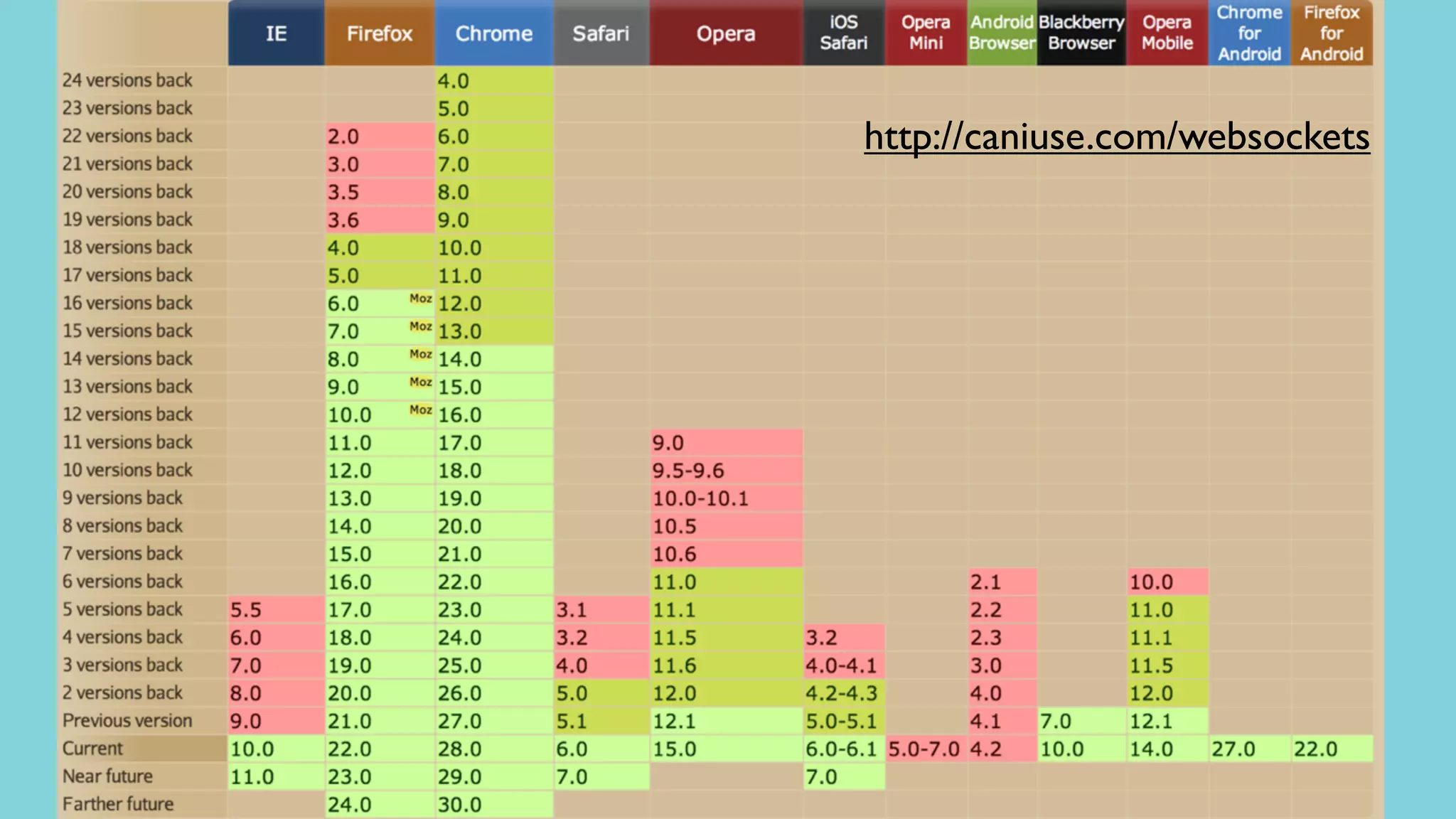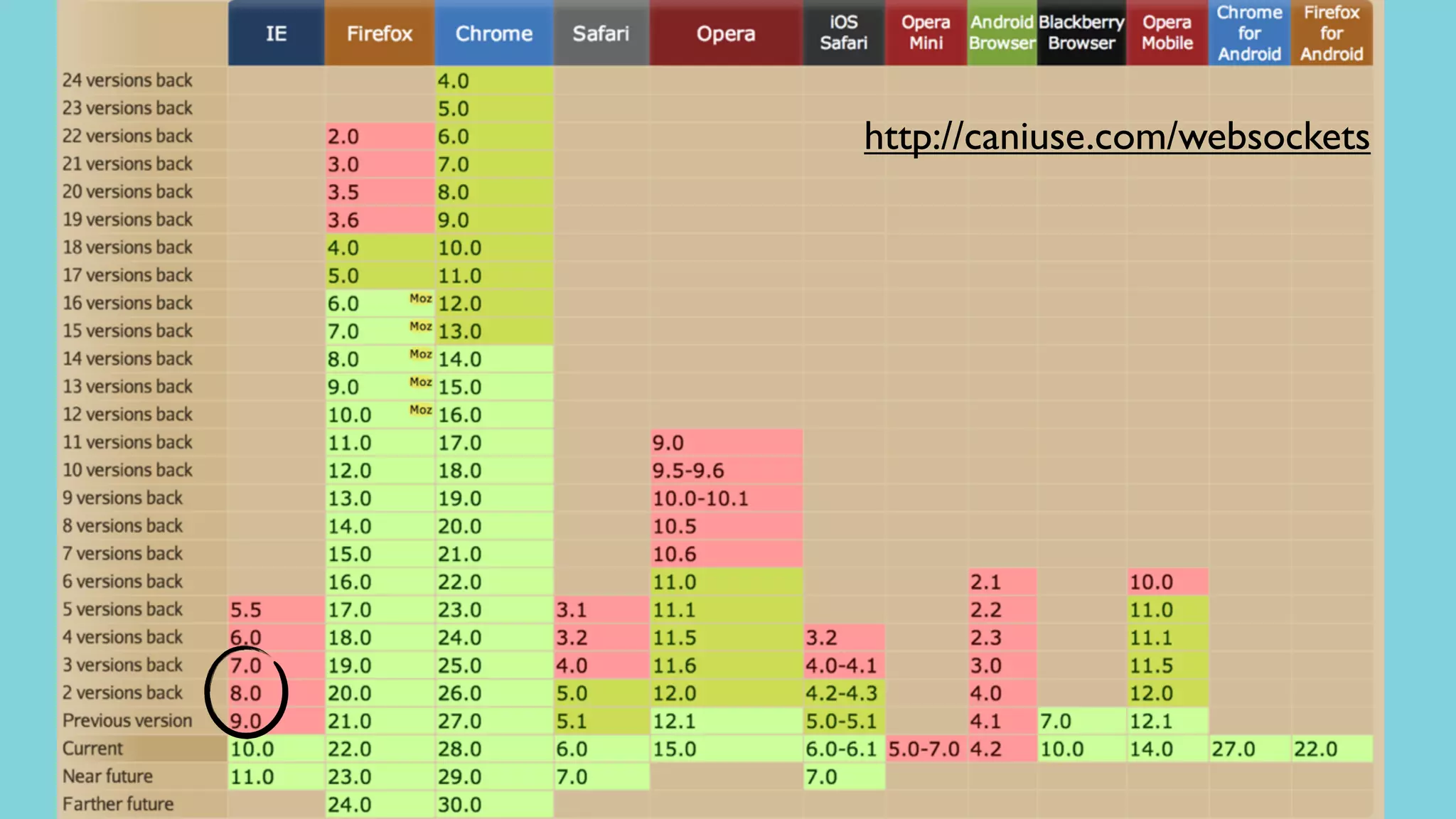The document discusses the transformation needed for real-time web applications, emphasizing the limitations of traditional request-response models and the advantages of WebSockets in providing full-duplex communication. It highlights implementation examples using the Play framework and covers performance benchmarks, connection management, and potential pitfalls like packet loss and thread safety. Additionally, it presents a simple chat room example illustrating the use of WebSockets in real-time communication within applications.

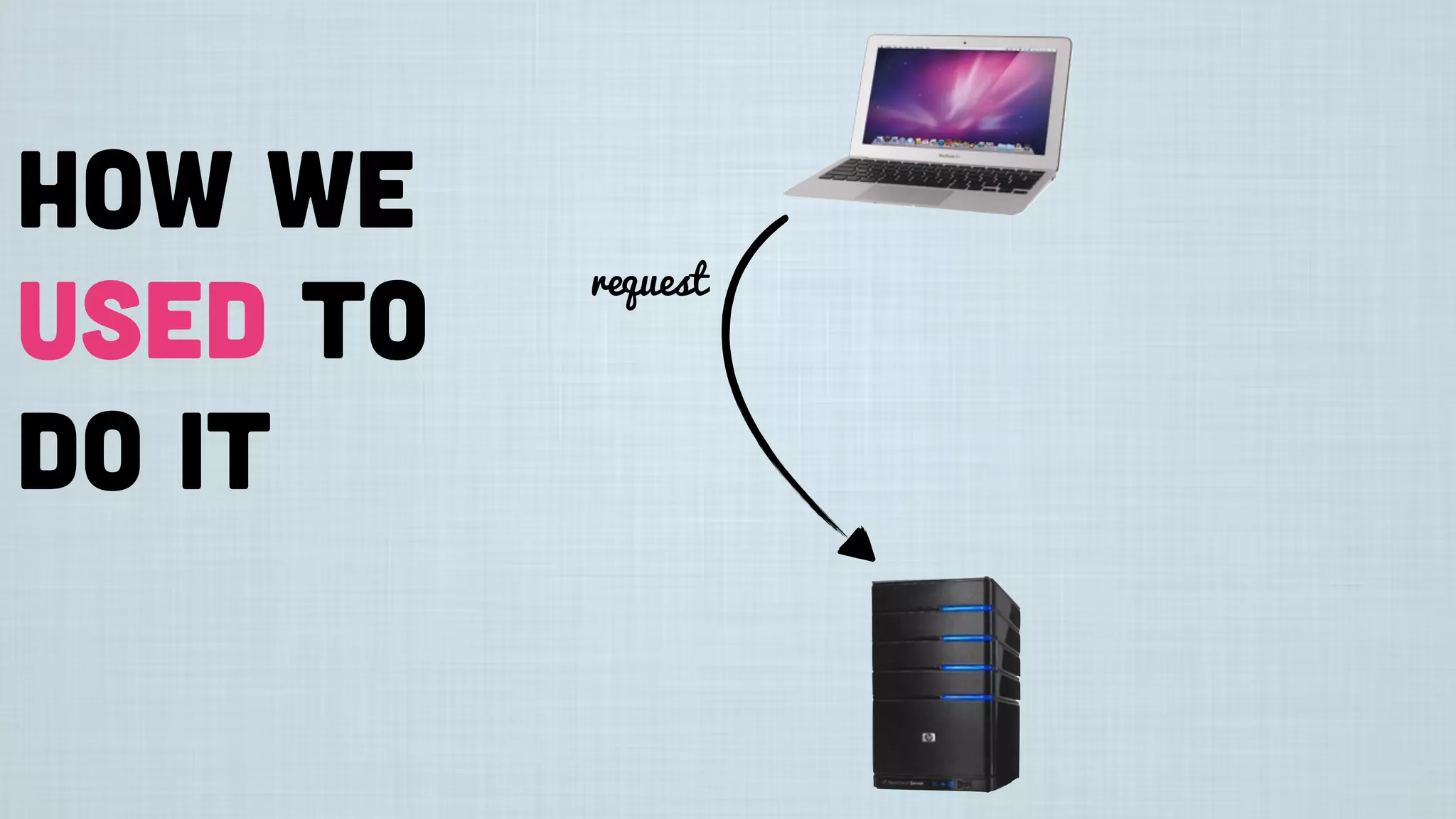
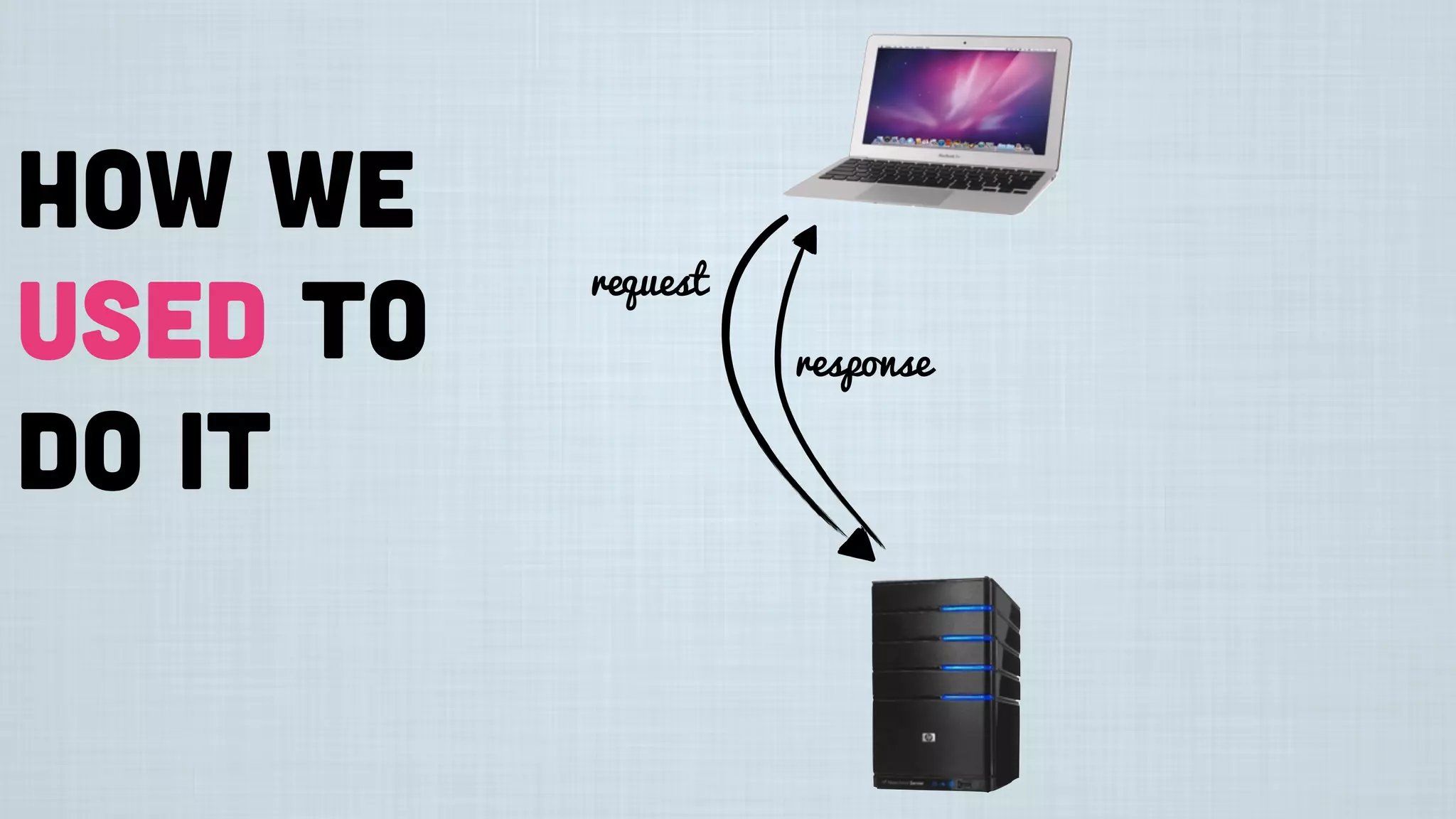





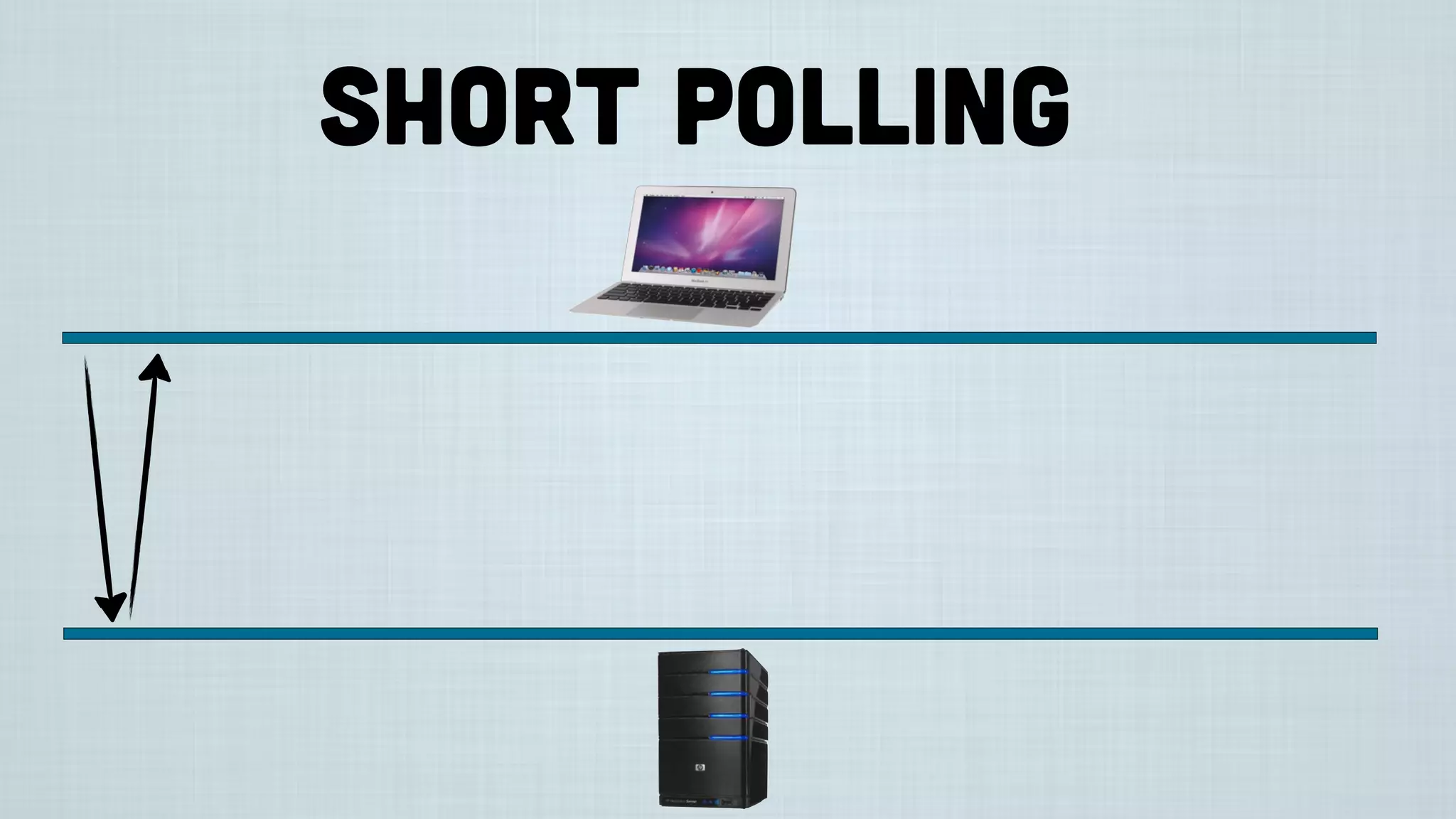
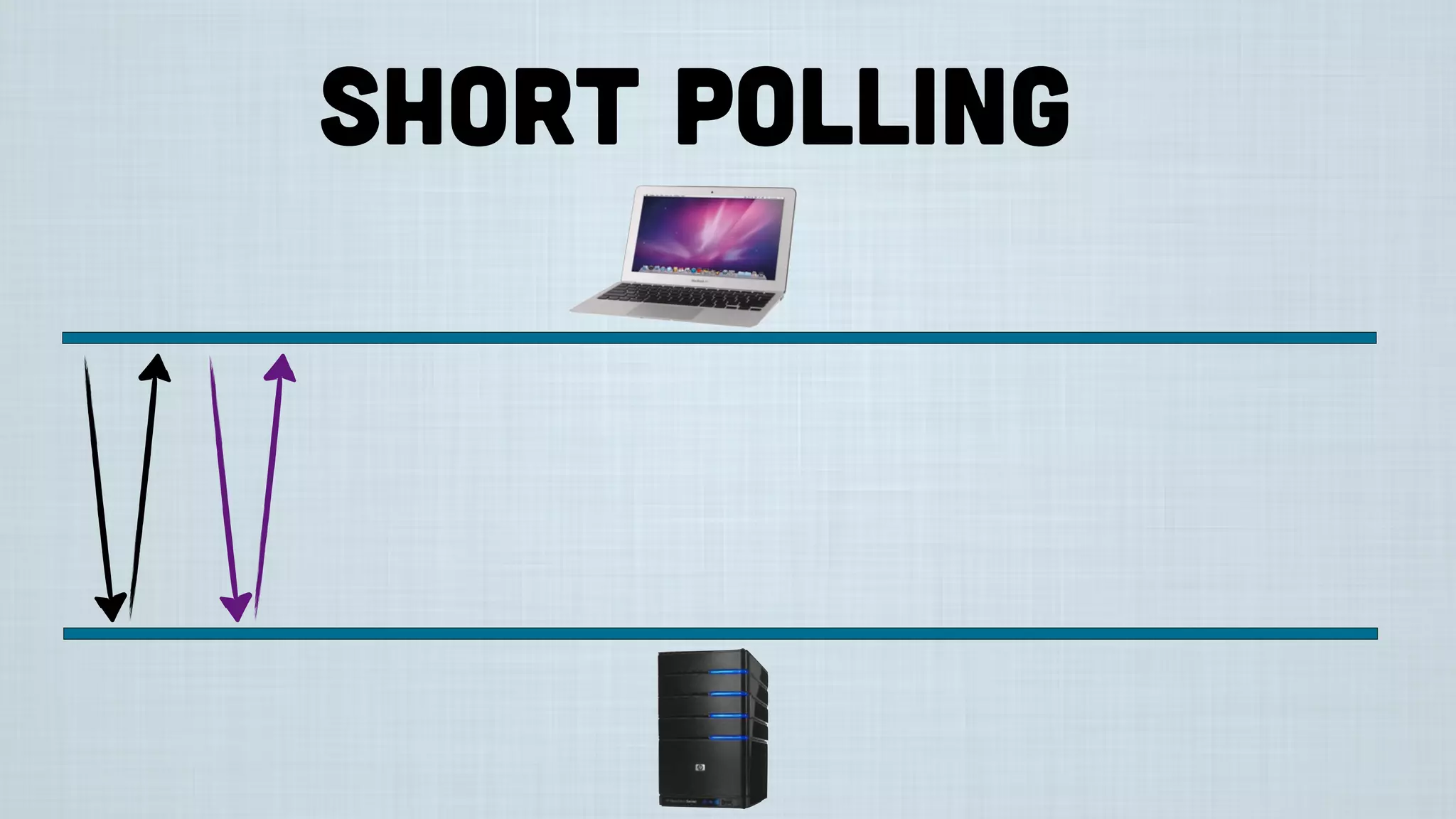
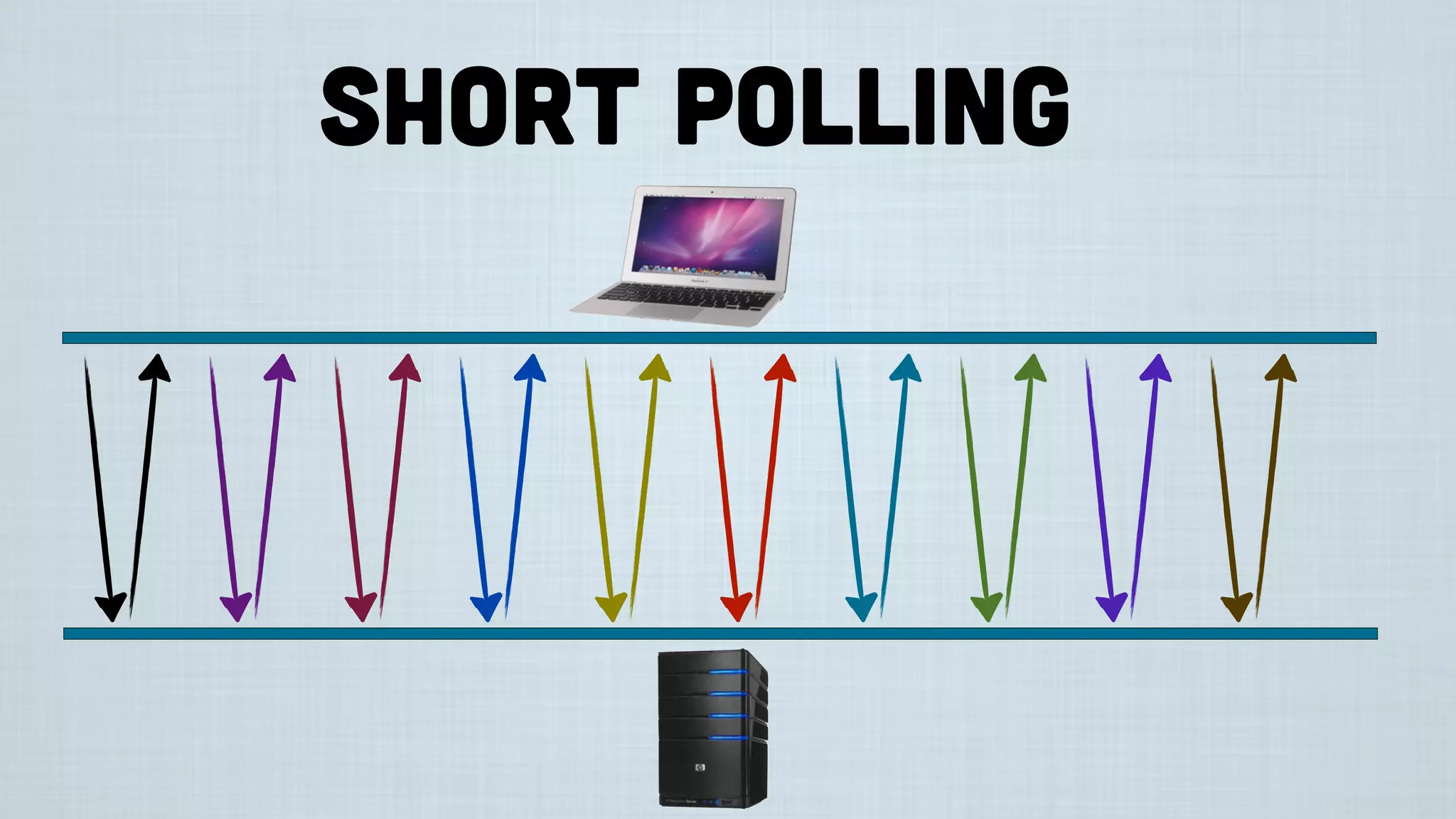
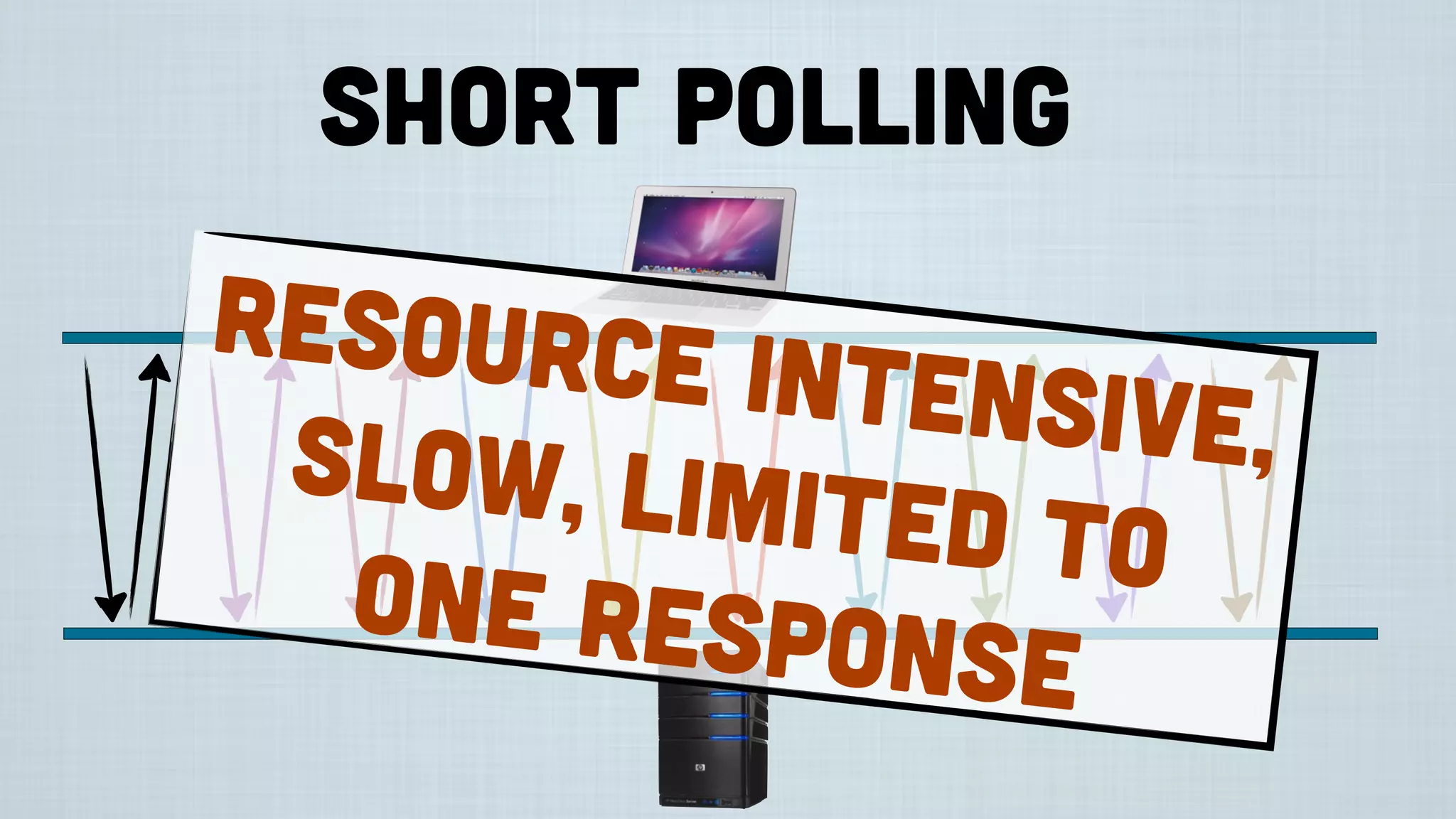
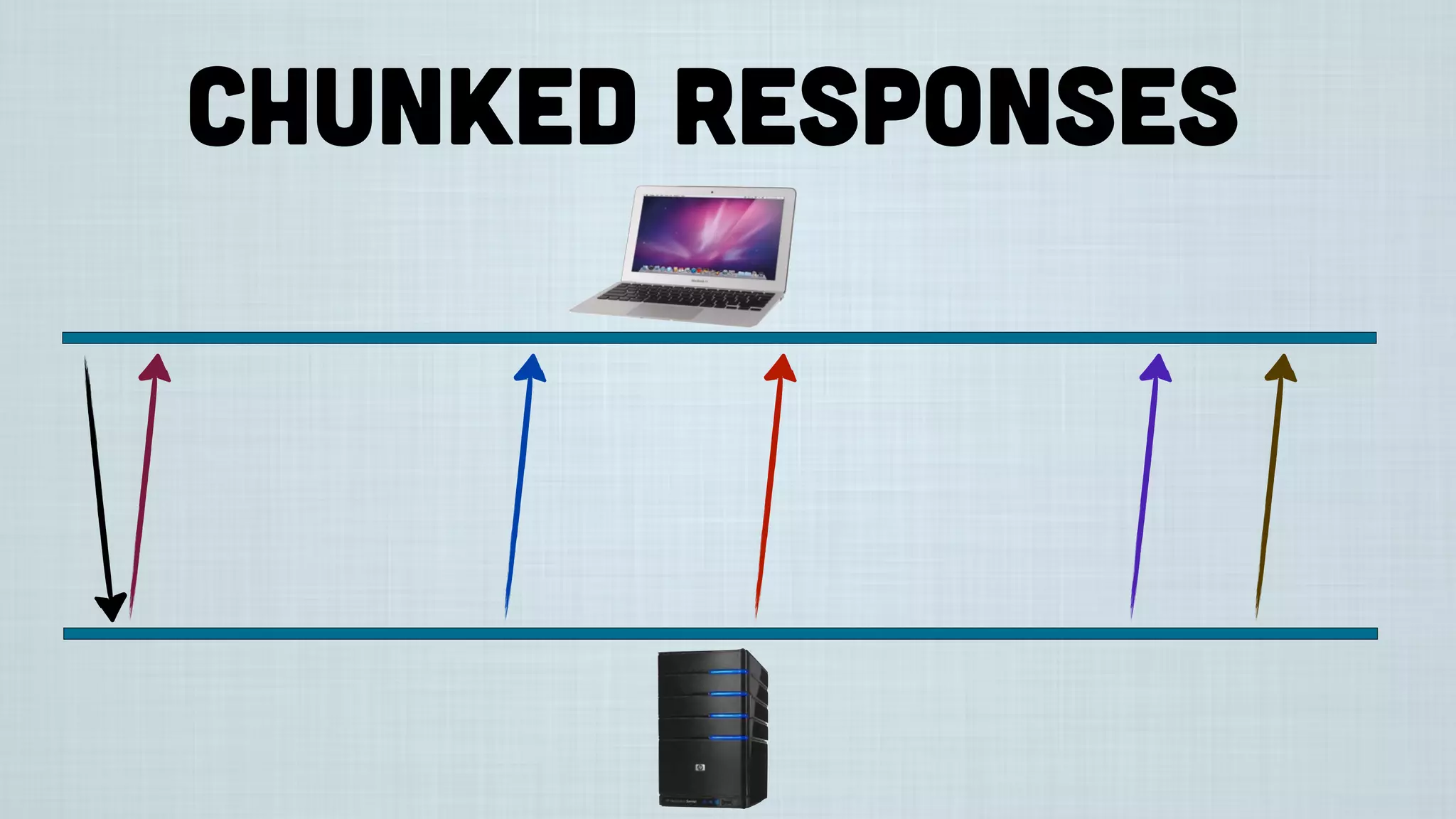
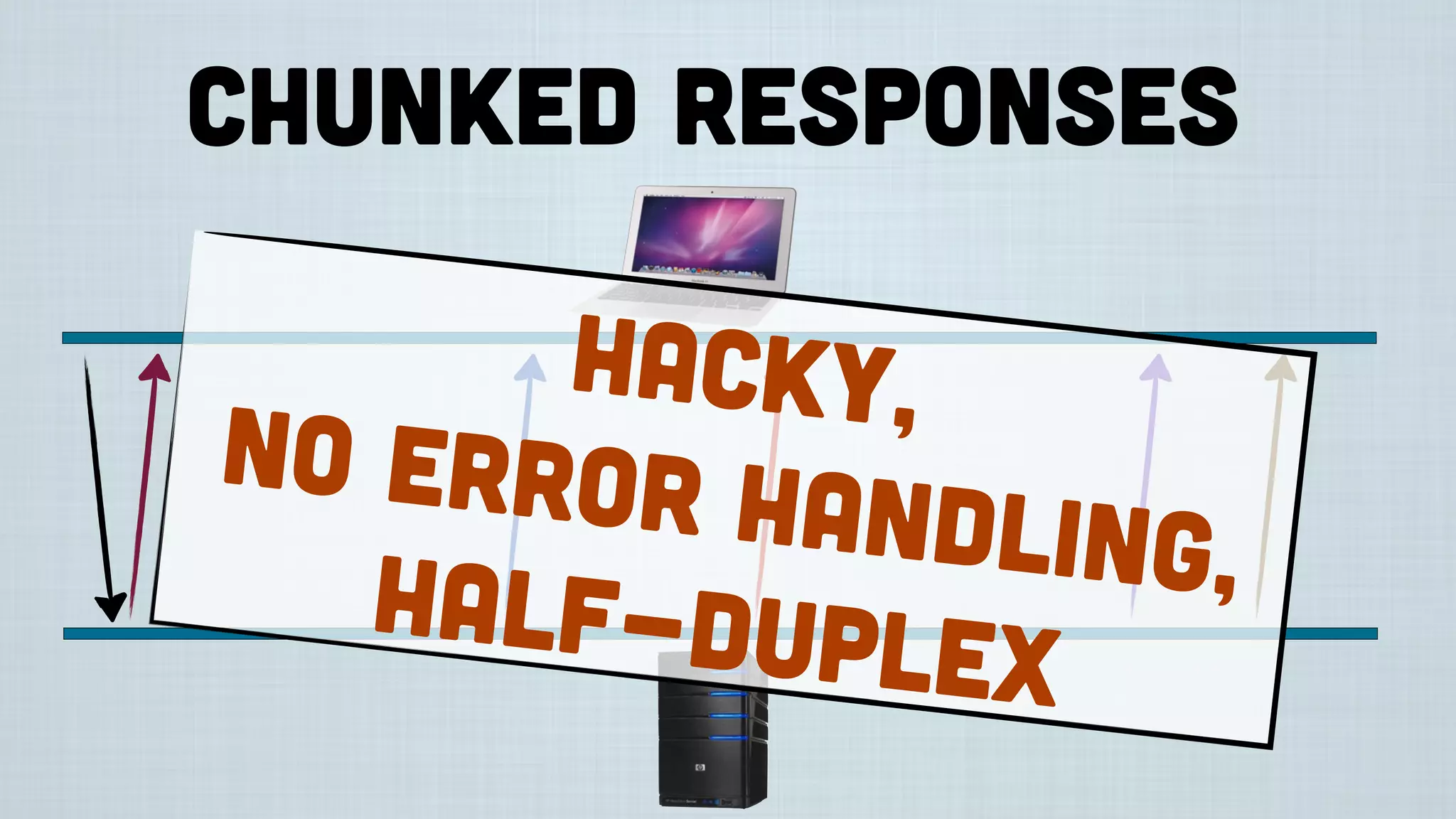
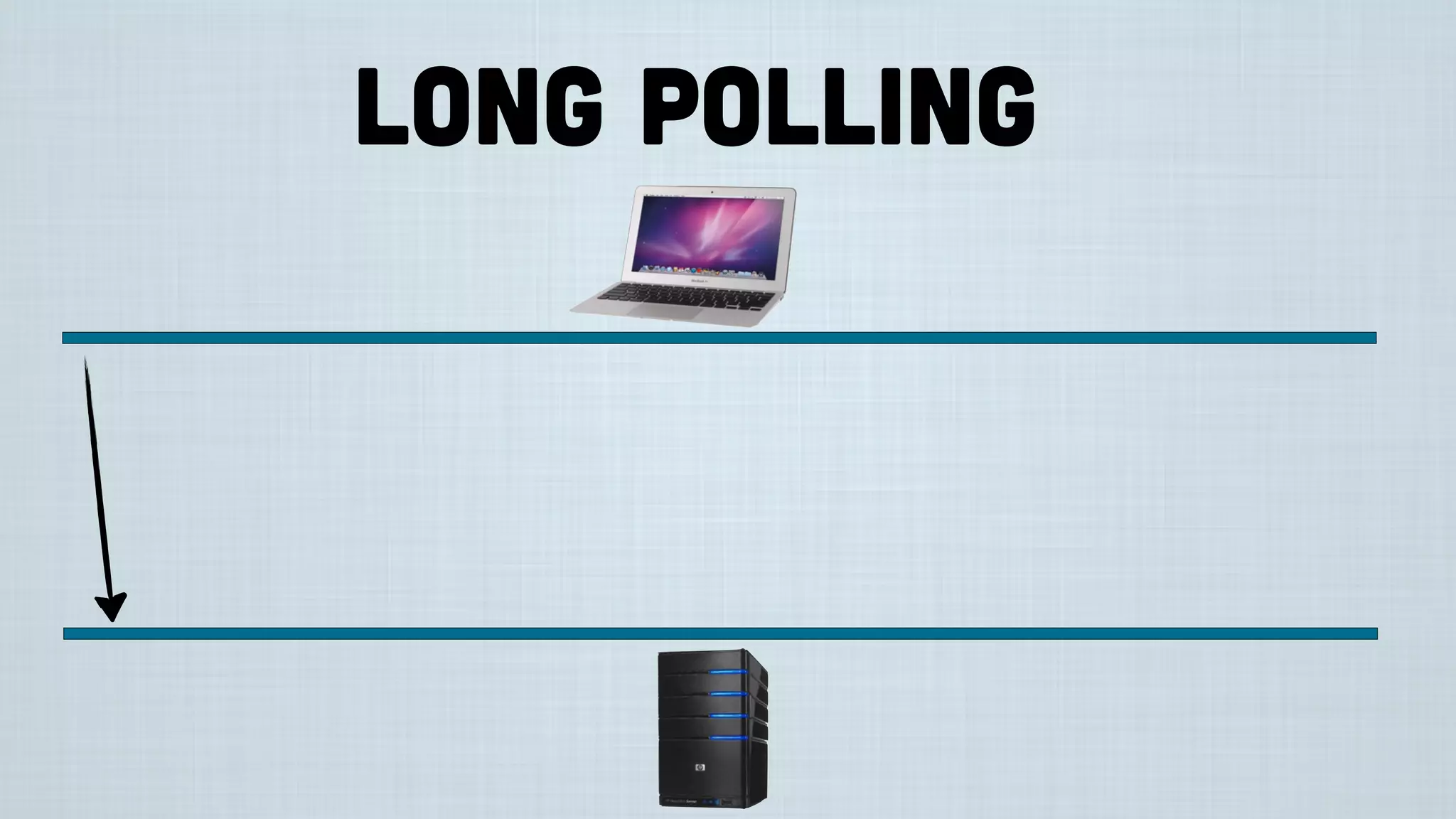
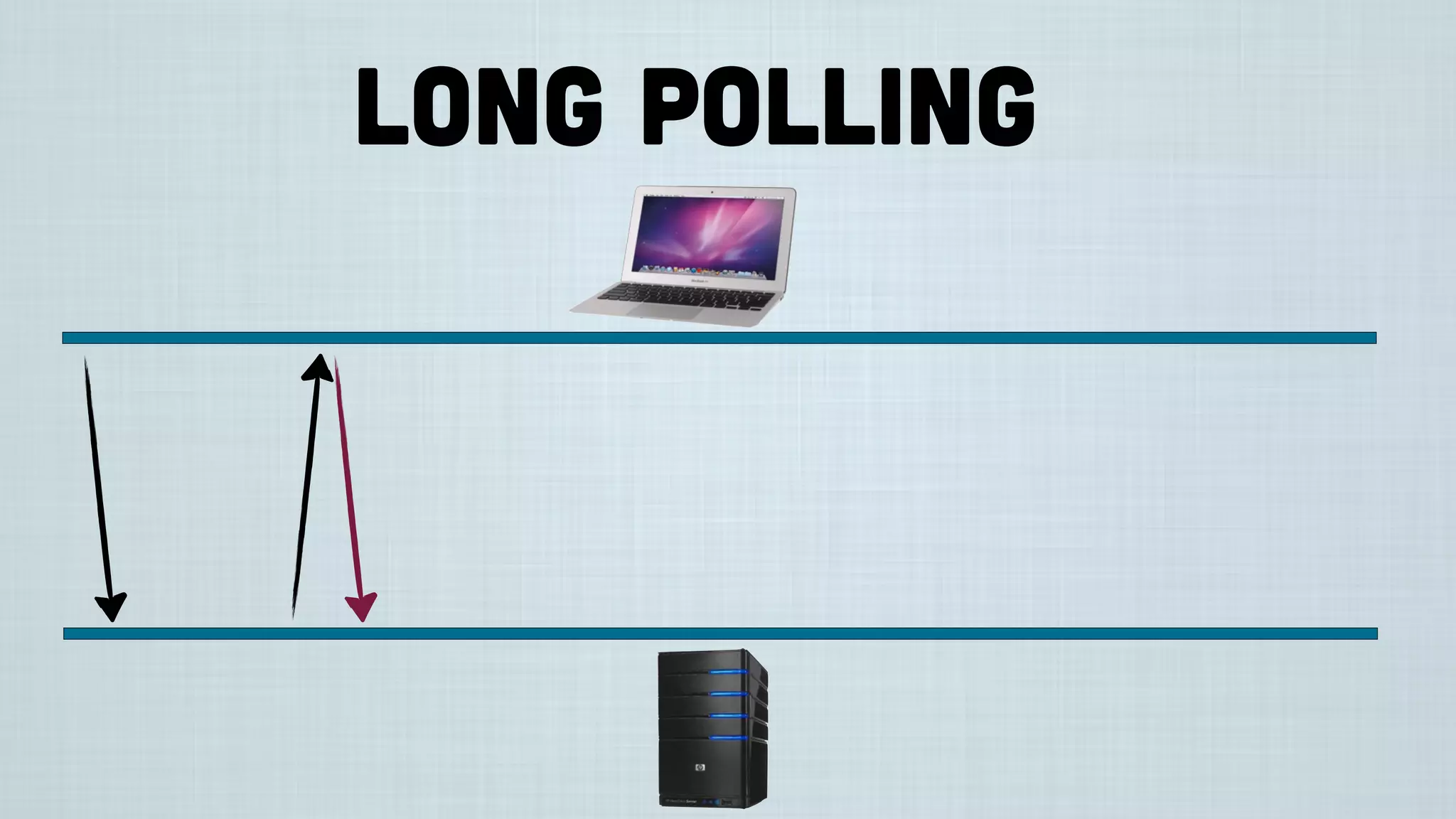
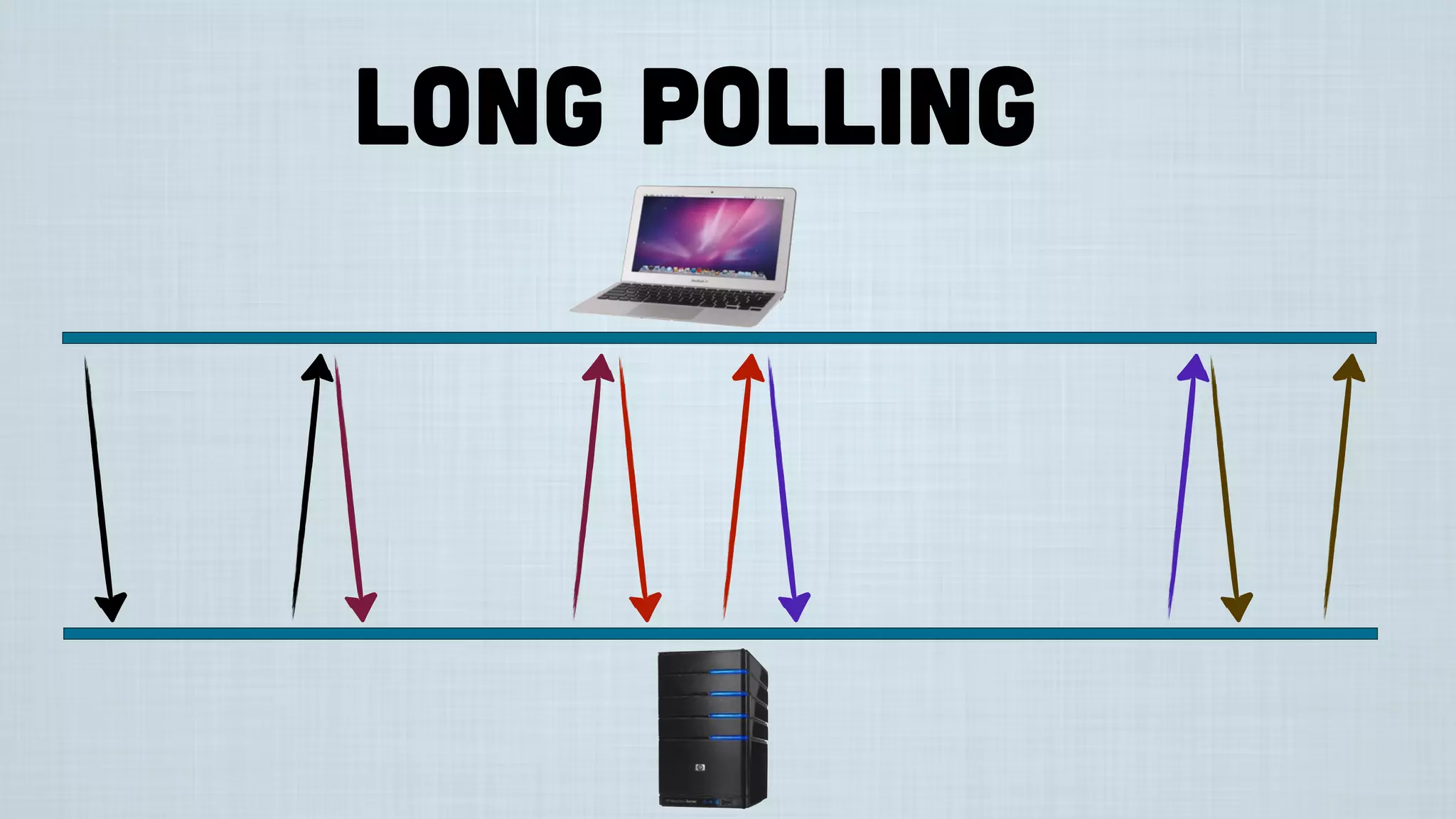
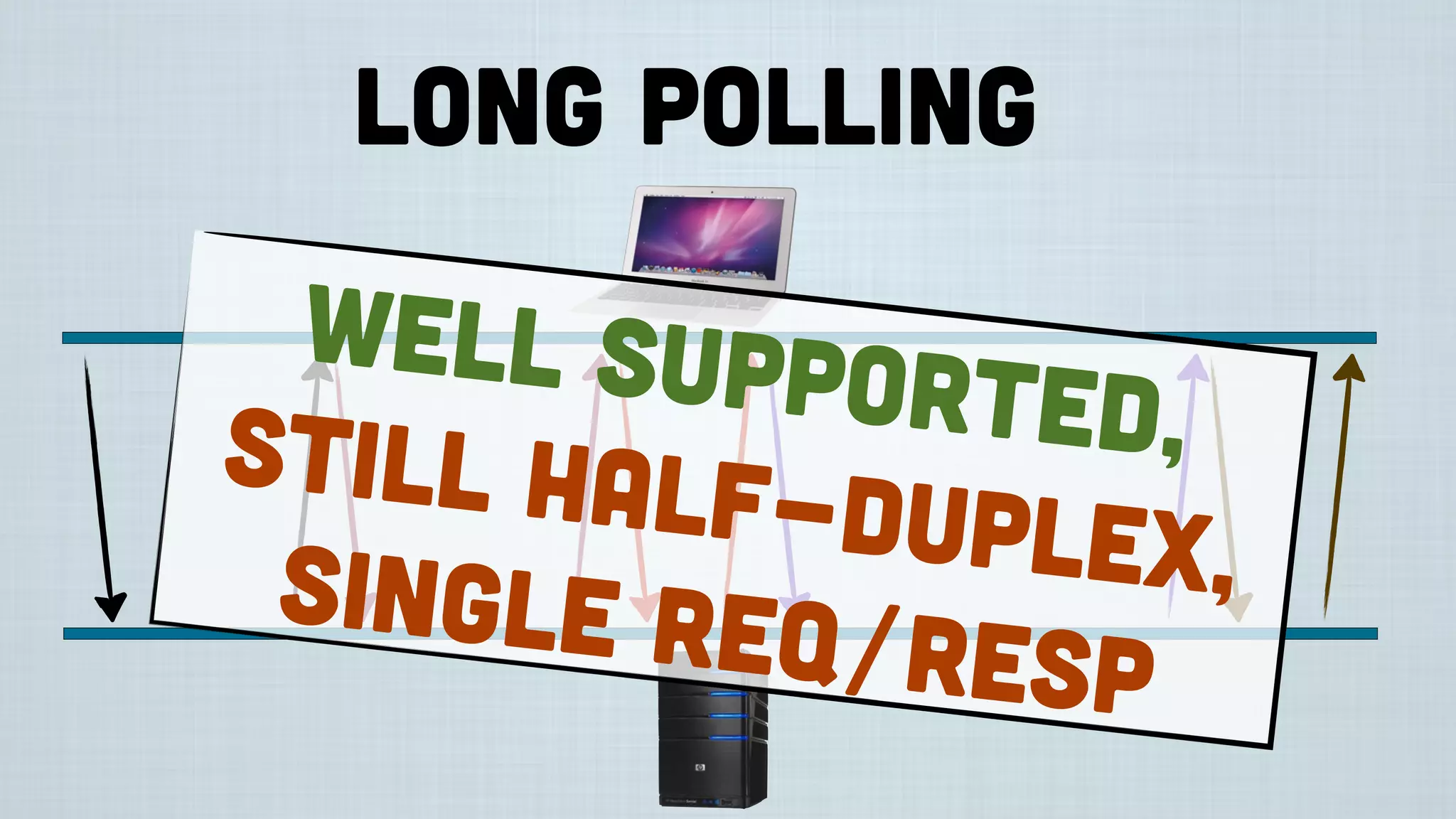

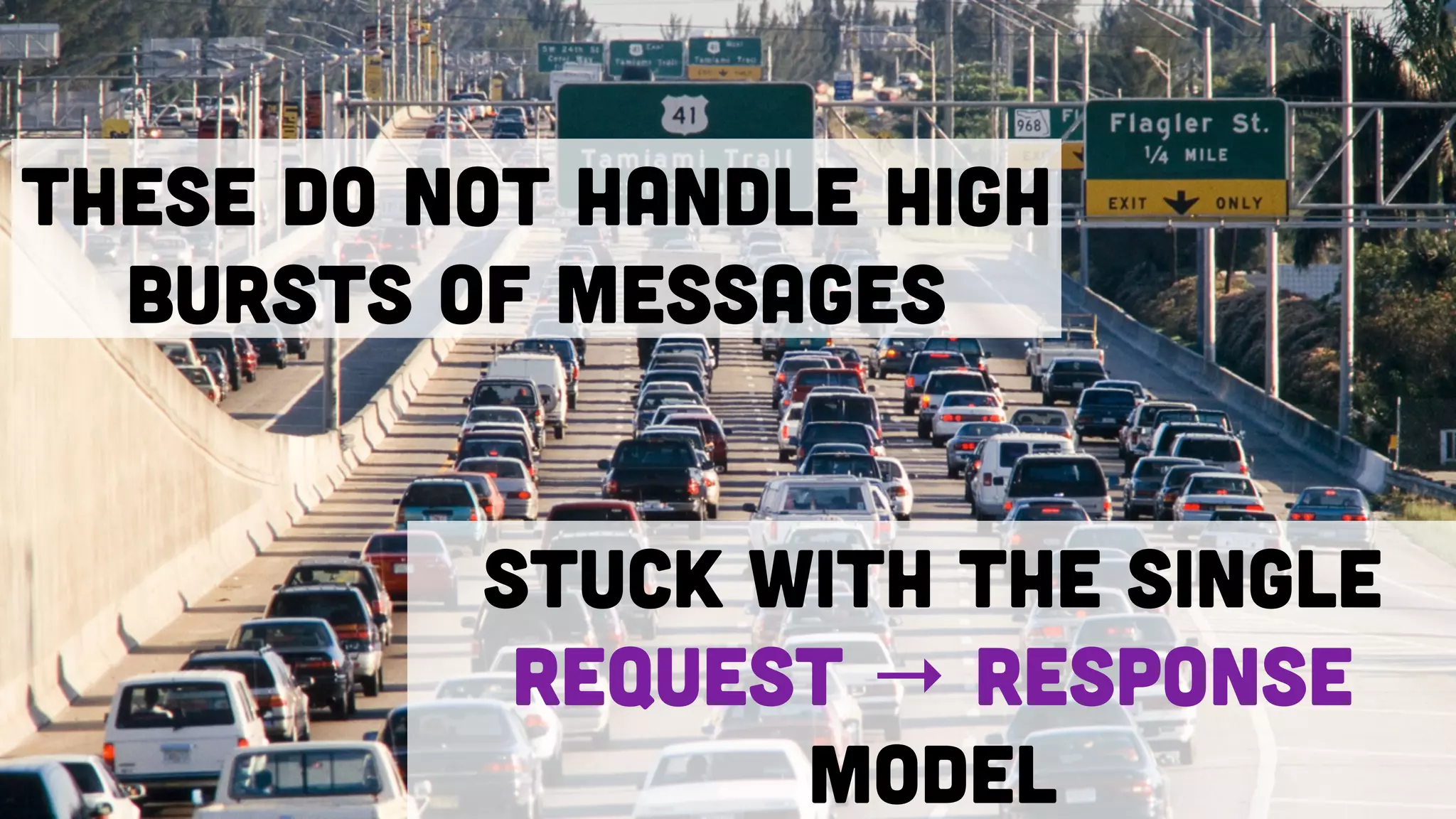
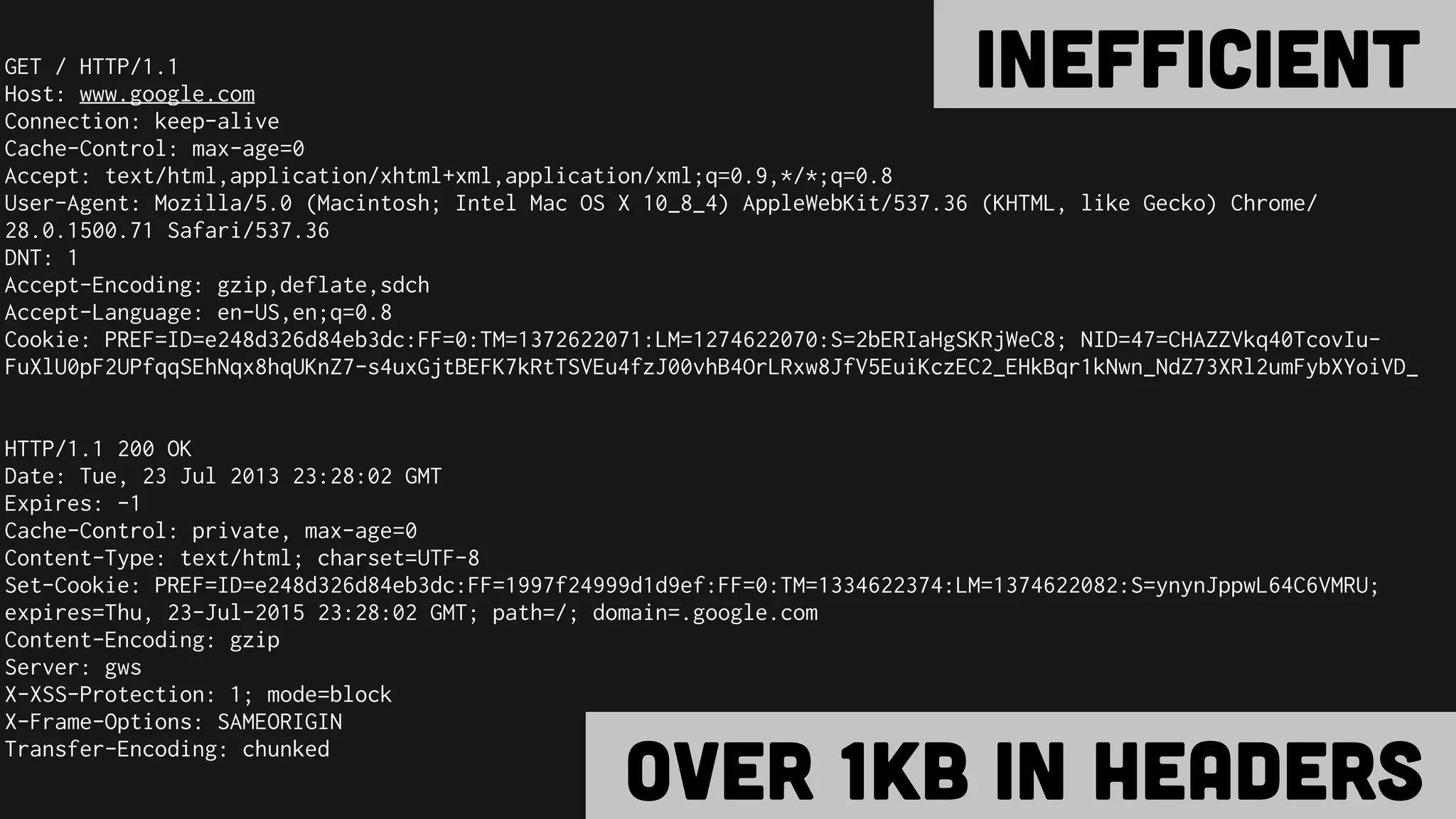







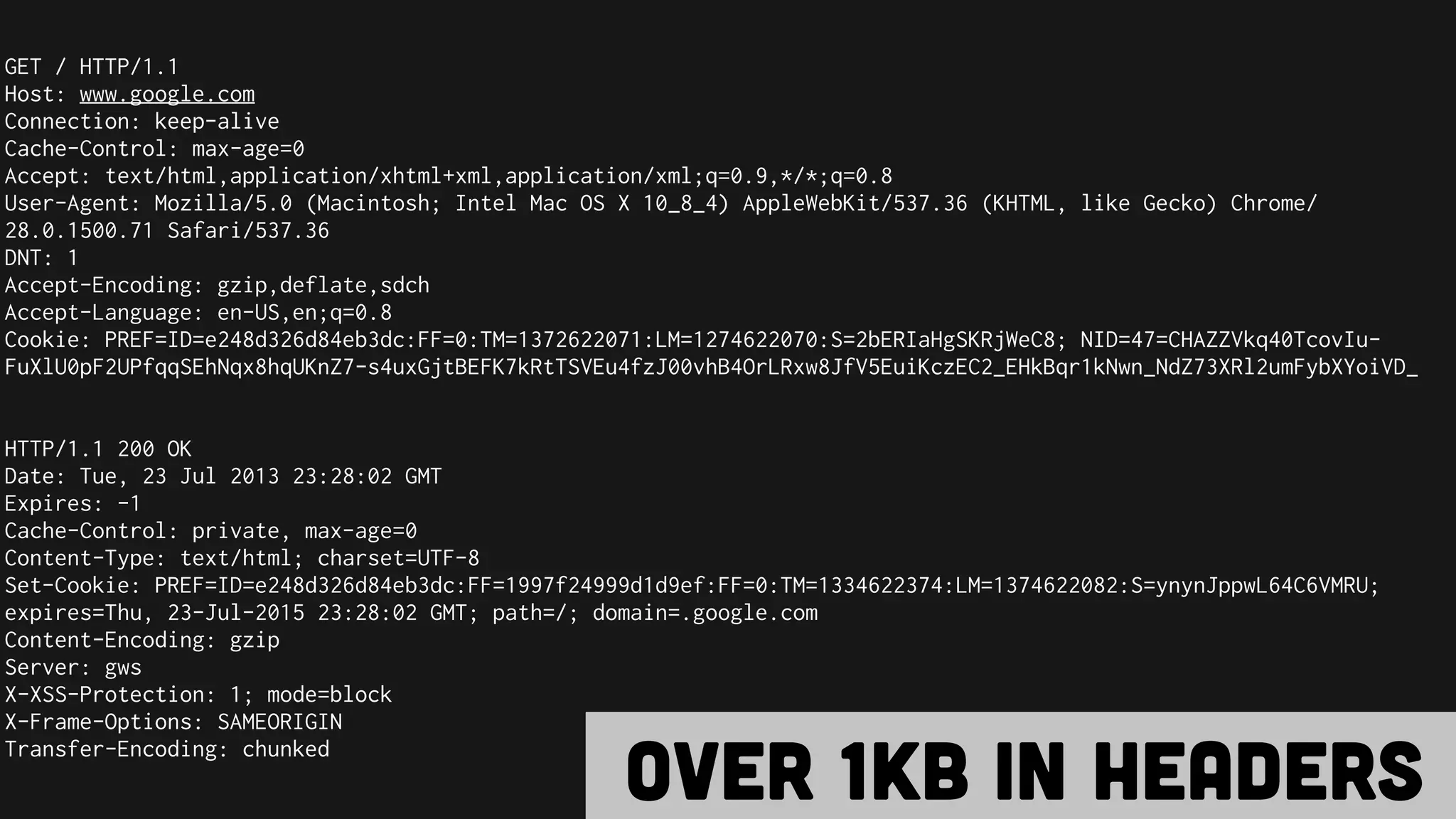

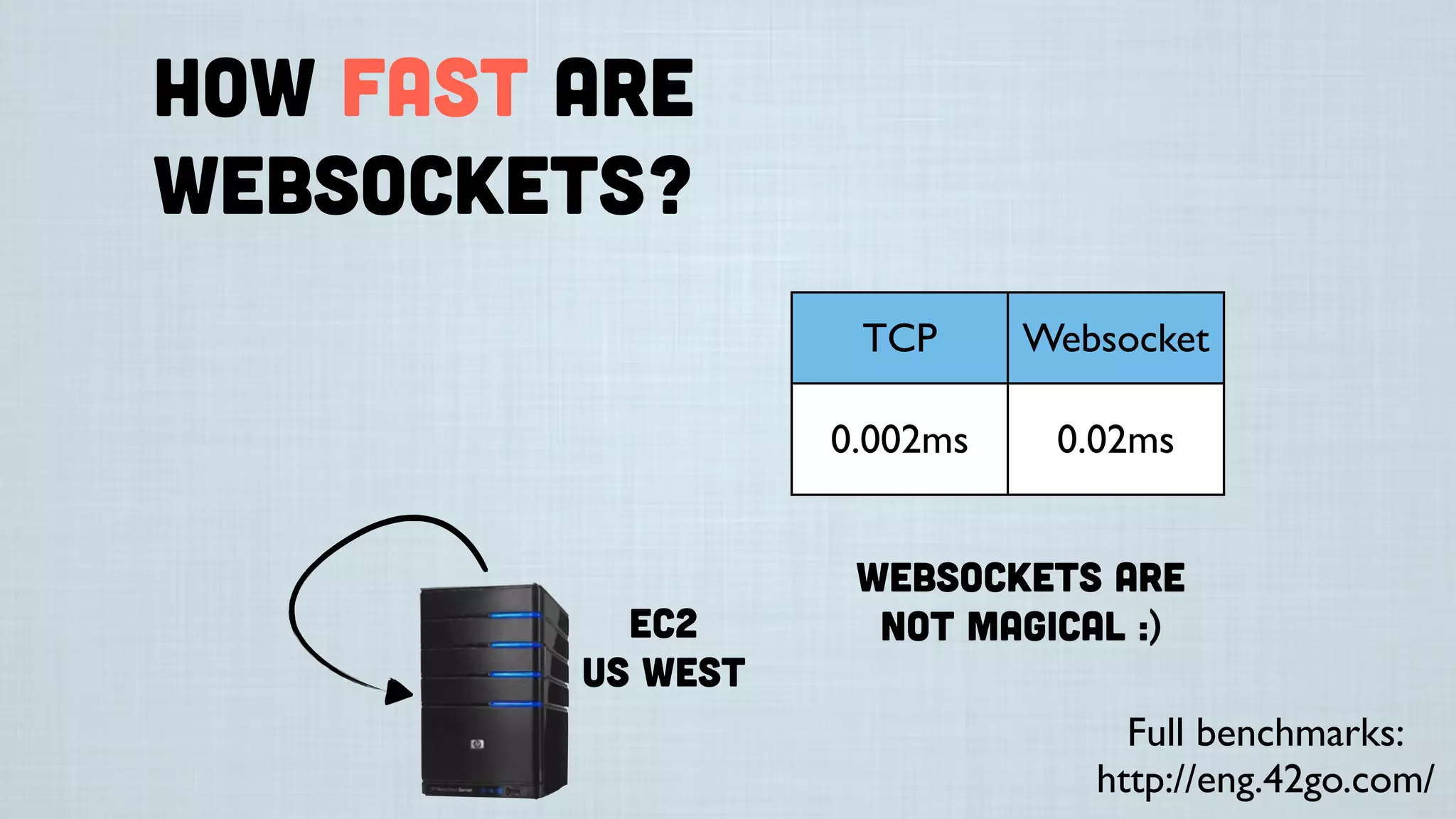
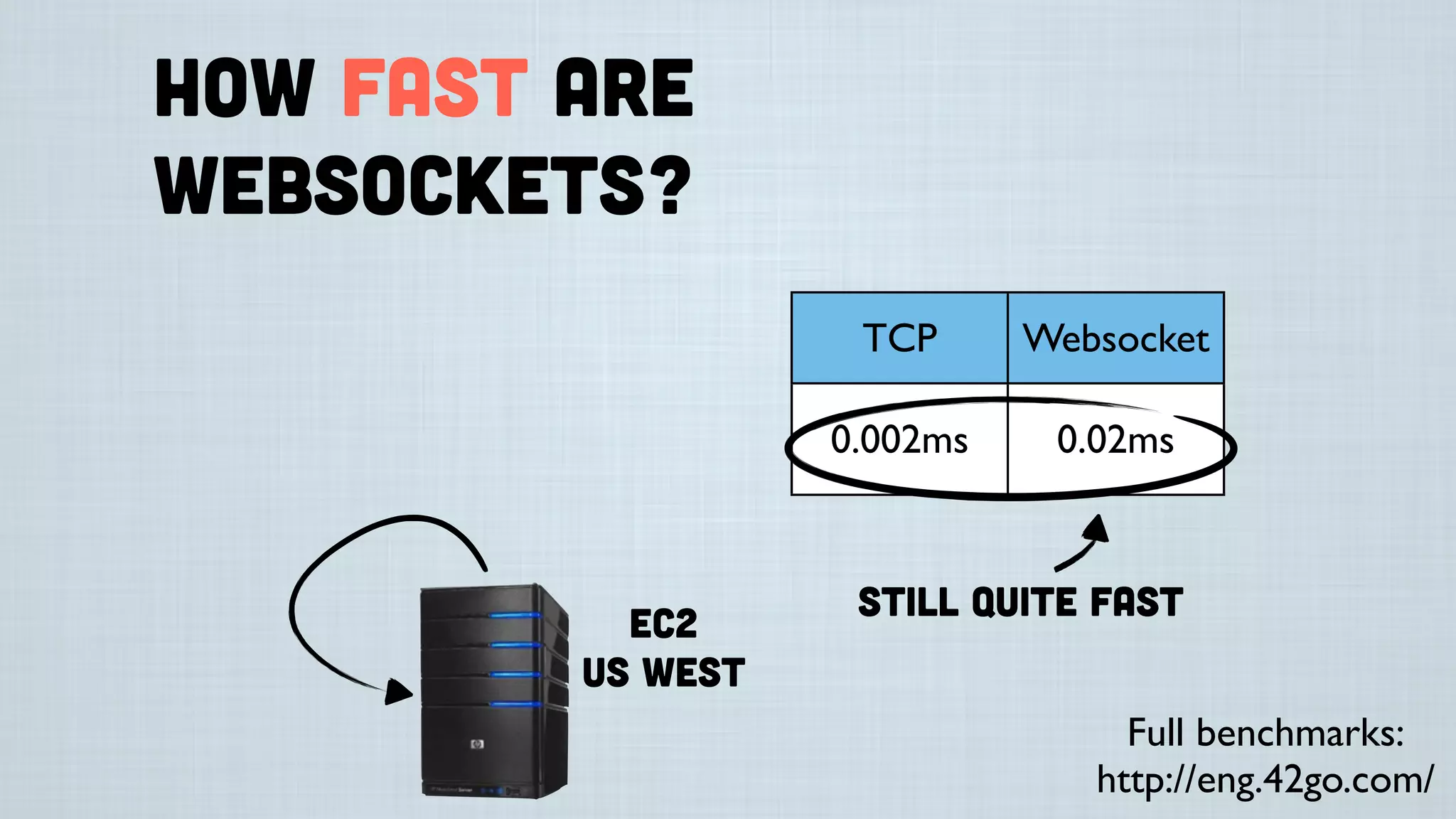







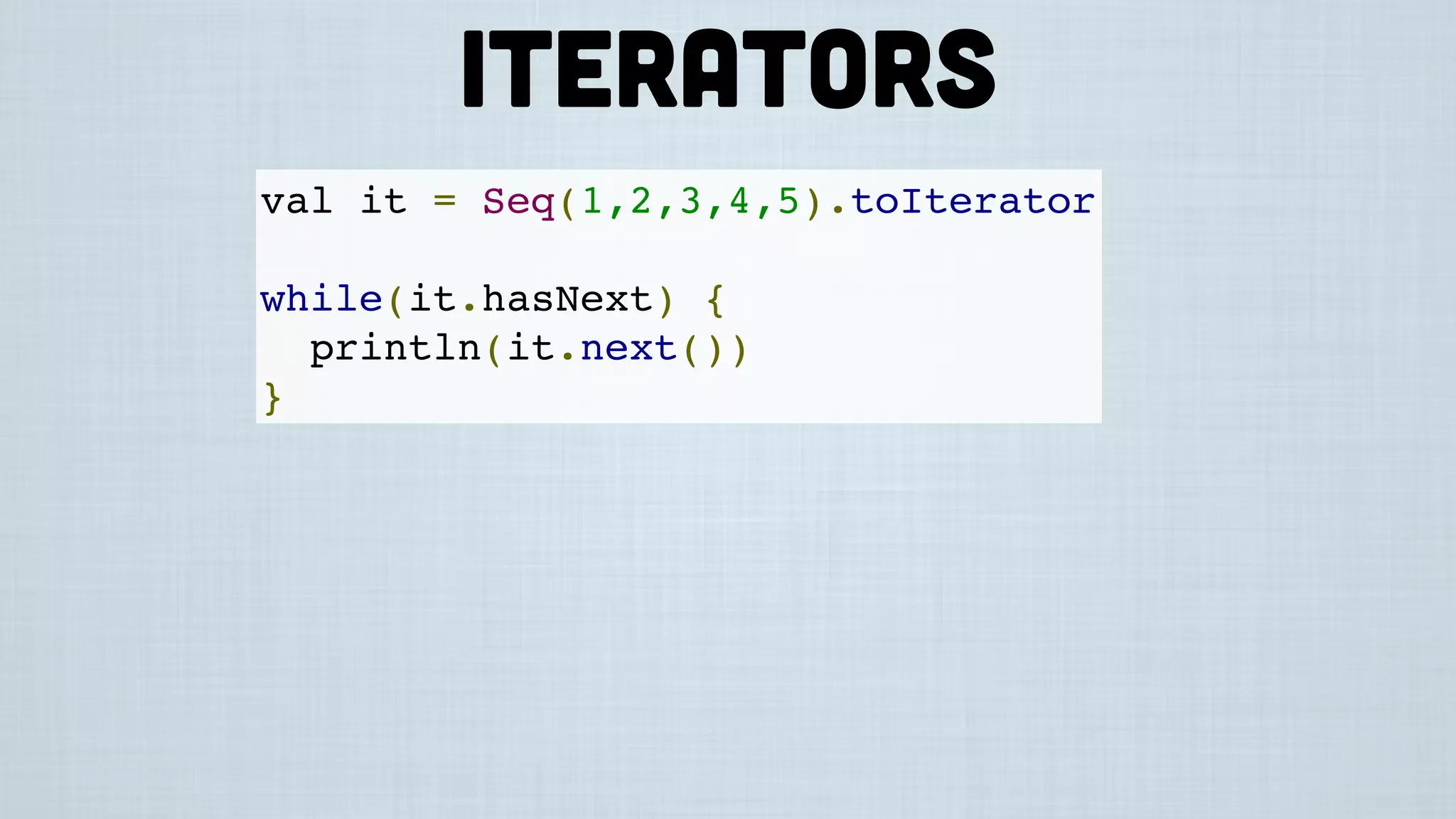
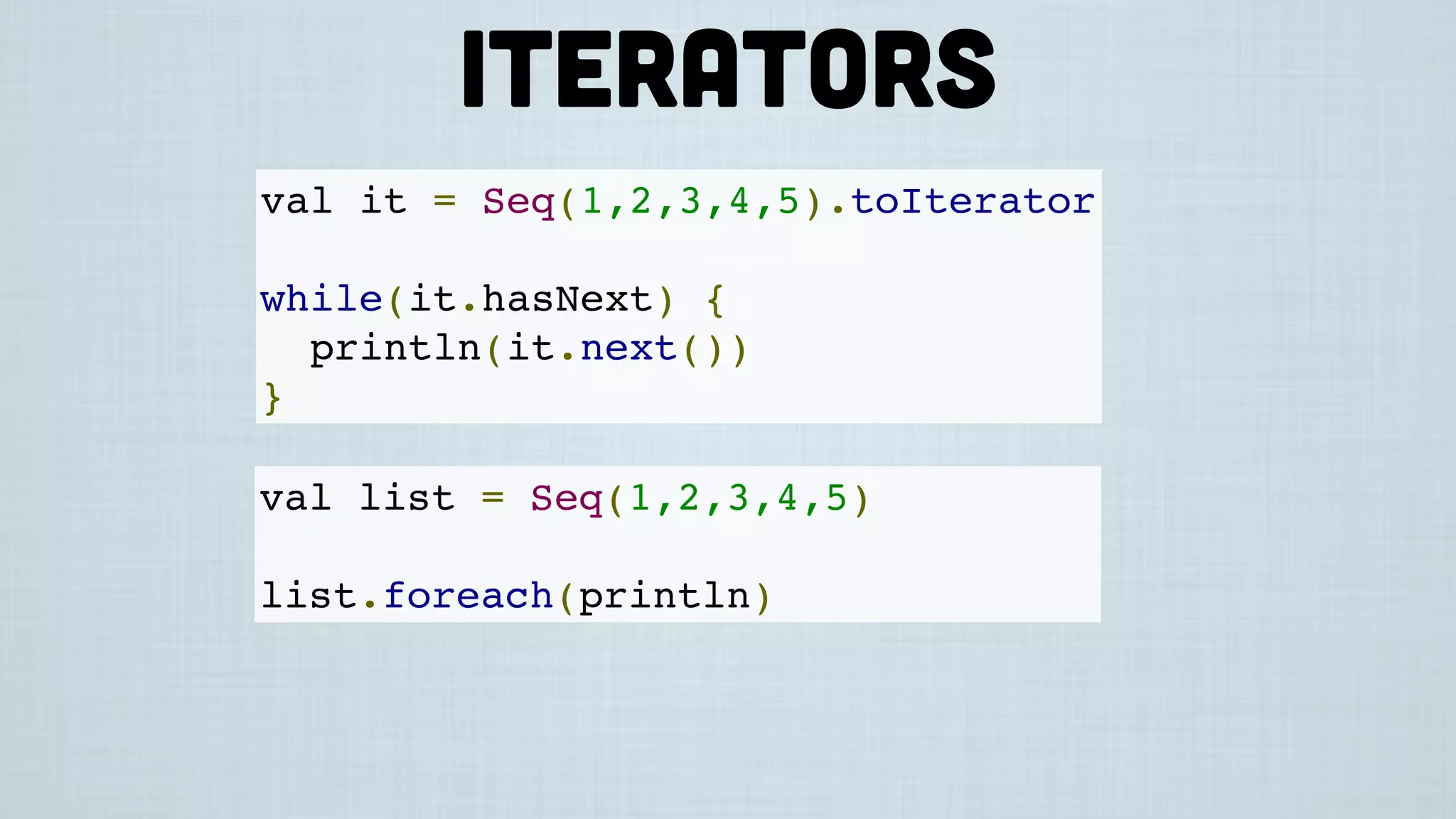
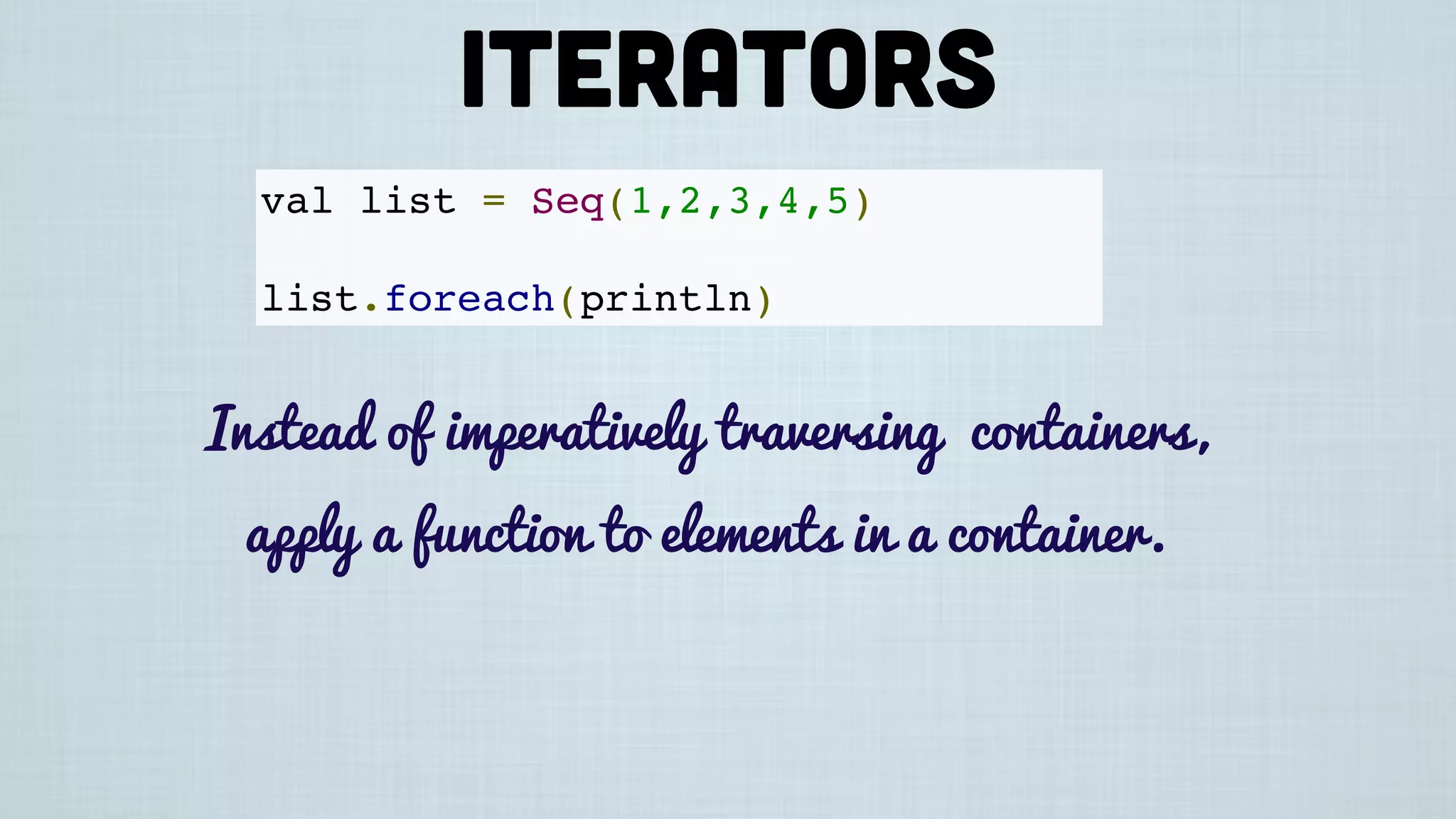
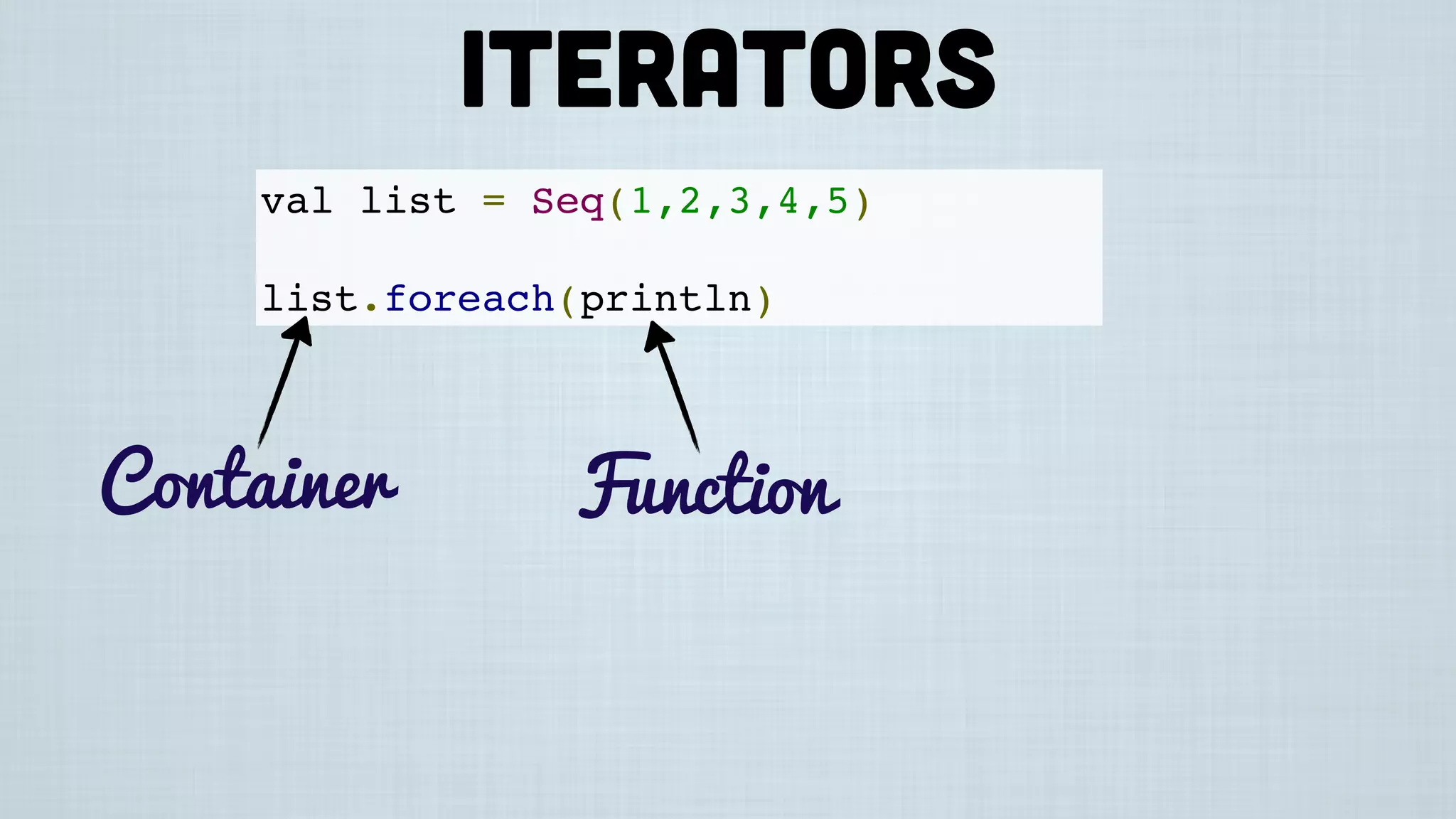
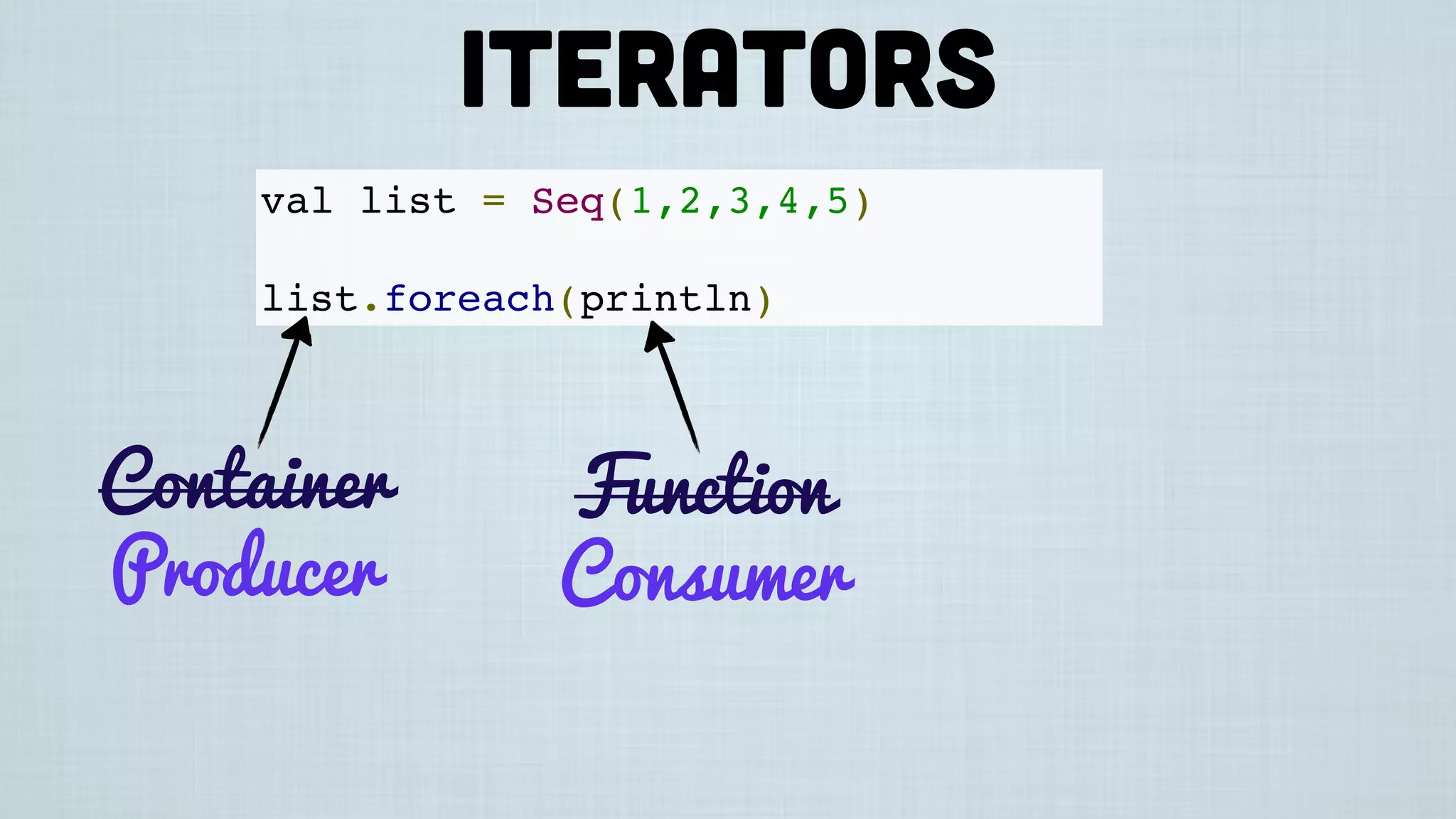




](https://image.slidesharecdn.com/websockets-130725154256-phpapp02/75/Using-Websockets-with-Play-49-2048.jpg)

Consumer
This iteratee will consume from an Enumerator
(the client), printing the input to the console](https://image.slidesharecdn.com/websockets-130725154256-phpapp02/75/Using-Websockets-with-Play-50-2048.jpg)

val out = Enumerator("You connected!").andThen(Enumerator.eof)
Producer
This Enumerator will be consumed by an iteratee
(The client), sending a string then EOF](https://image.slidesharecdn.com/websockets-130725154256-phpapp02/75/Using-Websockets-with-Play-51-2048.jpg)
![def index = WebSocket.using[JsArray] { request =>
val in = Iteratee.foreach[JsArray](println)
val out = Enumerator("You connected!").andThen(Enumerator.eof)
(in, out)
}](https://image.slidesharecdn.com/websockets-130725154256-phpapp02/75/Using-Websockets-with-Play-52-2048.jpg)
![def index = WebSocket.using[JsArray] { request =>
val in = Iteratee.foreach[JsArray](println)
val out = Enumerator("You connected!").andThen(Enumerator.eof)
(in, out)
}
It works!
> var createSocket = function() {
var s = new WebSocket("ws://localhost:9000");
s.onopen = function() { s.send("['hey!']"); }
s.onclose = function(e) { console.log("closed!",e); }
s.onmessage = function(msg) { console.log("got: ", msg.data); }
return s;
}
undefined
> var socket = createSocket()
undefined
got: You connected!
closed!
CloseEvent {reason: "", code: 1005, wasClean: true, clipboardData:](https://image.slidesharecdn.com/websockets-130725154256-phpapp02/75/Using-Websockets-with-Play-53-2048.jpg)
![def echo = WebSocket.using[JsArray] { request =>
val (out, channel) = Concurrent.broadcast[JsArray]
val in = Iteratee.foreach[JsArray](channel.push)
(in, out)
}](https://image.slidesharecdn.com/websockets-130725154256-phpapp02/75/Using-Websockets-with-Play-54-2048.jpg)
![def echo = WebSocket.using[JsArray] { request =>
val (out, channel) = Concurrent.broadcast[JsArray]
val in = Iteratee.foreach[JsArray](channel.push)
(in, out)
}
feeds into
Channels let us
imperatively push data
into an enumerator](https://image.slidesharecdn.com/websockets-130725154256-phpapp02/75/Using-Websockets-with-Play-55-2048.jpg)


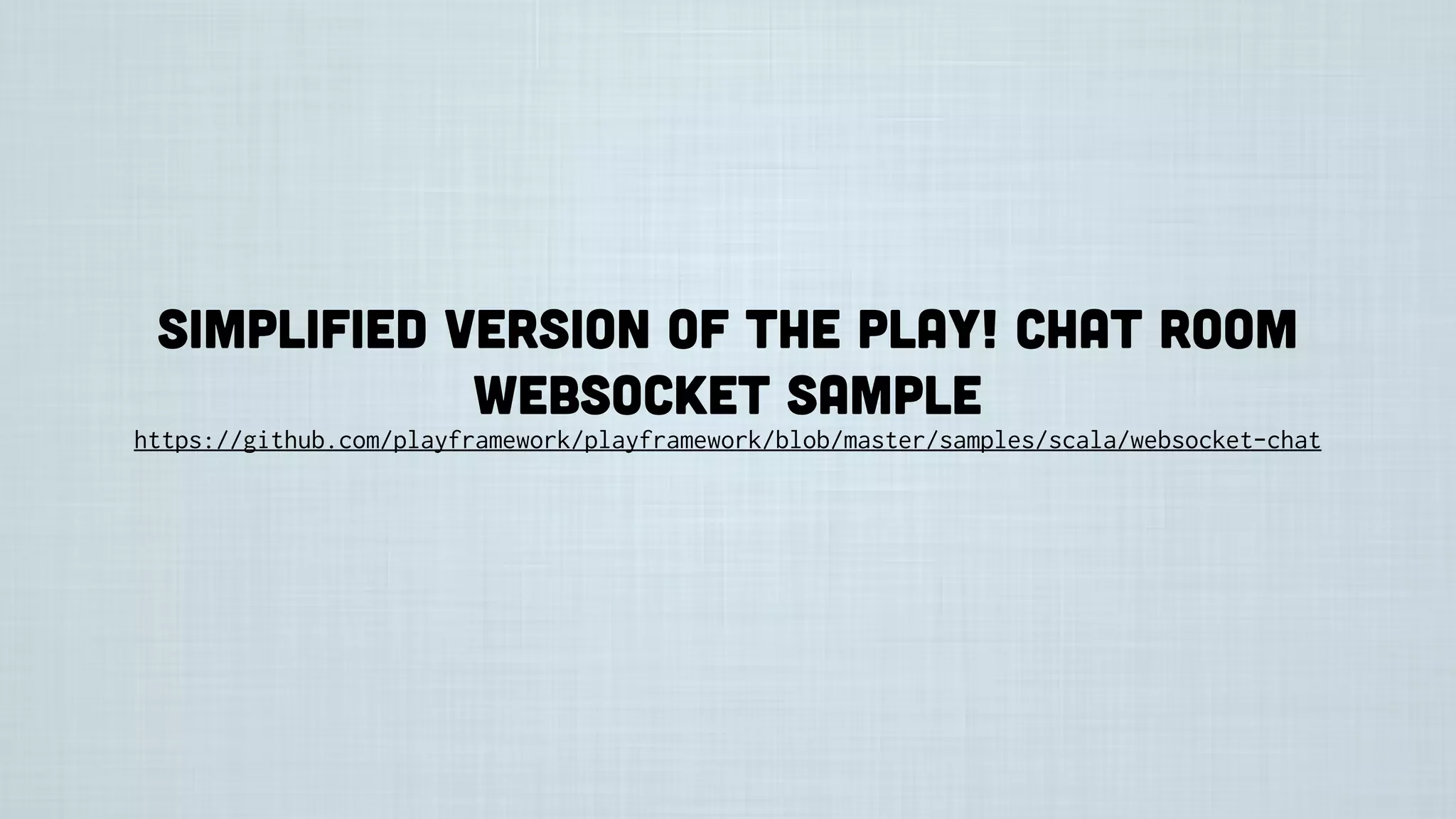
![case class Join(username: String)
case class Quit(username: String)
case class Talk(username: String, text: String)
class ChatRoom extends Actor {
var members = Set.empty[String]
val (chatEnumerator, chatChannel) = Concurrent.broadcast[JsValue]
val chatBot = "Marvin"
def receive = ???
}](https://image.slidesharecdn.com/websockets-130725154256-phpapp02/75/Using-Websockets-with-Play-59-2048.jpg)
![case class Join(username: String)
case class Quit(username: String)
case class Talk(username: String, text: String)
class ChatRoom extends Actor {
var members = Set.empty[String]
val (chatEnumerator, chatChannel) = Concurrent.broadcast[JsValue]
val chatBot = "Marvin"
def receive = ???
} channel
output
lets us push data
into the enumerator](https://image.slidesharecdn.com/websockets-130725154256-phpapp02/75/Using-Websockets-with-Play-60-2048.jpg)
![case class Join(username: String)
case class Quit(username: String)
case class Talk(username: String, text: String)
class ChatRoom extends Actor {
var members = Set.empty[String]
val (chatEnumerator, chatChannel) = Concurrent.broadcast[JsValue]
val chatBot = "Marvin"
def receive = {
case Join(username) => {
members = members + username
broadcastMessage(chatBot, s"$username has joined")
sender ! chatEnumerator
}
case Quit(username) =>
case Talk(username, text) =>
}
def broadcastMessage(user: String, text: String): Unit = ???
}](https://image.slidesharecdn.com/websockets-130725154256-phpapp02/75/Using-Websockets-with-Play-61-2048.jpg)
![case class Join(username: String)
case class Quit(username: String)
case class Talk(username: String, text: String)
class ChatRoom extends Actor {
var members = Set.empty[String]
val (chatEnumerator, chatChannel) = Concurrent.broadcast[JsValue]
val chatBot = "Marvin"
def receive = {
case Join(username) => {
members = members + username
broadcastMessage(chatBot, s"$username has joined")
sender ! chatEnumerator
}
case Quit(username) =>
case Talk(username, text) =>
}
def broadcastMessage(user: String, text: String): Unit = ???
}
send back a reference
to the chatroom’s enumerator](https://image.slidesharecdn.com/websockets-130725154256-phpapp02/75/Using-Websockets-with-Play-62-2048.jpg)
![case class Join(username: String)
case class Quit(username: String)
case class Talk(username: String, text: String)
class ChatRoom extends Actor {
var members = Set.empty[String]
val (chatEnumerator, chatChannel) = Concurrent.broadcast[JsValue]
val chatBot = "Marvin"
def receive = {
case Join(username) => {
members = members + username
broadcastMessage(chatBot, s"$username has joined")
sender ! chatEnumerator
}
case Quit(username) => {
broadcastMessage(chatBot, s"$username has left")
members = members - username
}
case Talk(username, text) => broadcastMessage(username, text)
}
def broadcastMessage(user: String, text: String): Unit = ???
}](https://image.slidesharecdn.com/websockets-130725154256-phpapp02/75/Using-Websockets-with-Play-63-2048.jpg)
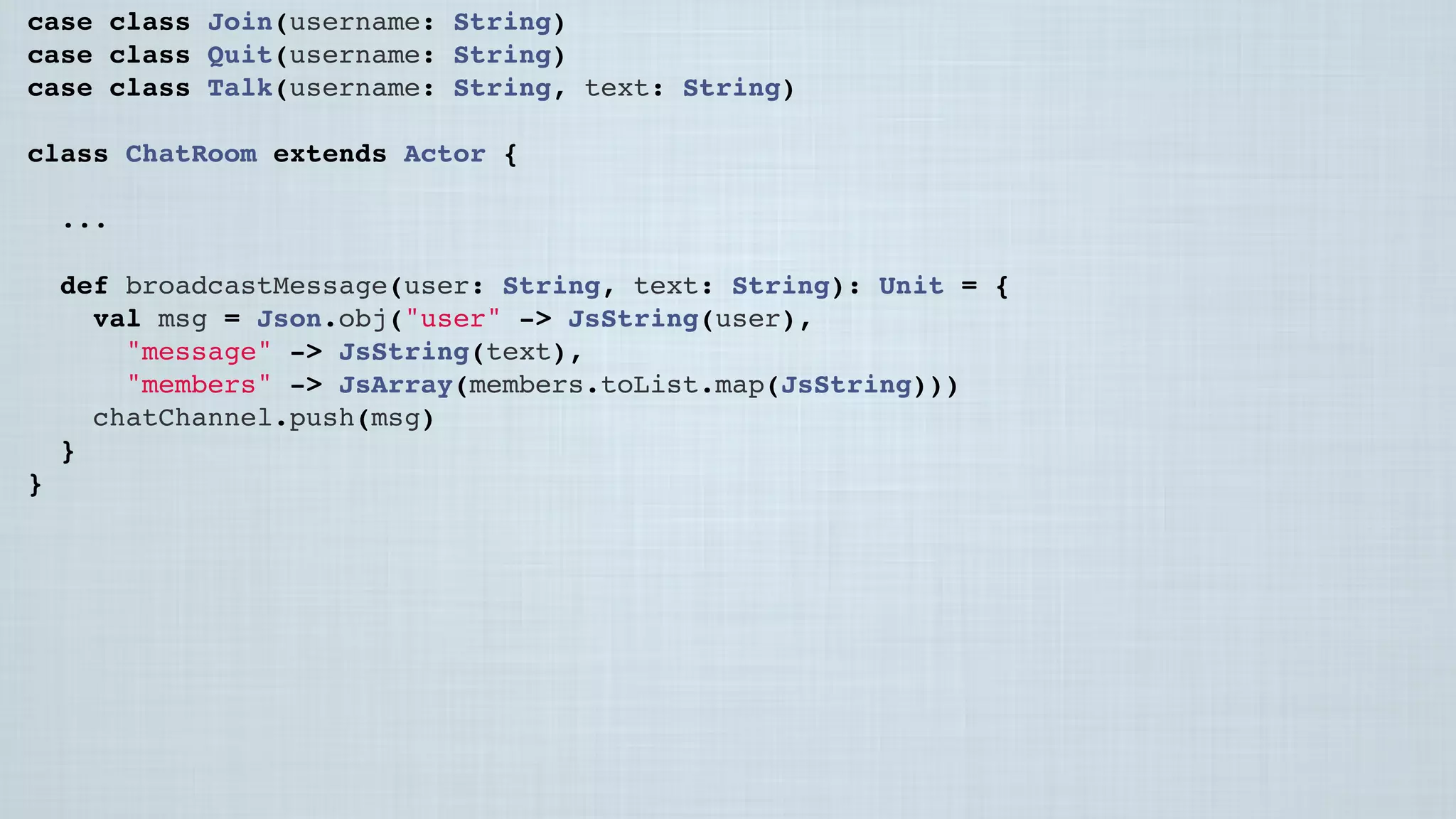
![object Application extends Controller {
lazy val chatroomActor = Akka.system.actorOf(Props[ChatRoom])
def chat(username: String) = WebSocket.async[JsValue] { request =>
(chatroomActor ? Join(username)) map {
// grab the Enumerator from ChatRoom:
case out: Enumerator[JsValue] =>
val in = Iteratee.foreach[JsValue] { event =>
chatroomActor ! Talk(username, (event "text").as[String])
}.mapDone { _ =>
chatroomActor ! Quit(username)
}
(in, out)
}
}
}](https://image.slidesharecdn.com/websockets-130725154256-phpapp02/75/Using-Websockets-with-Play-65-2048.jpg)
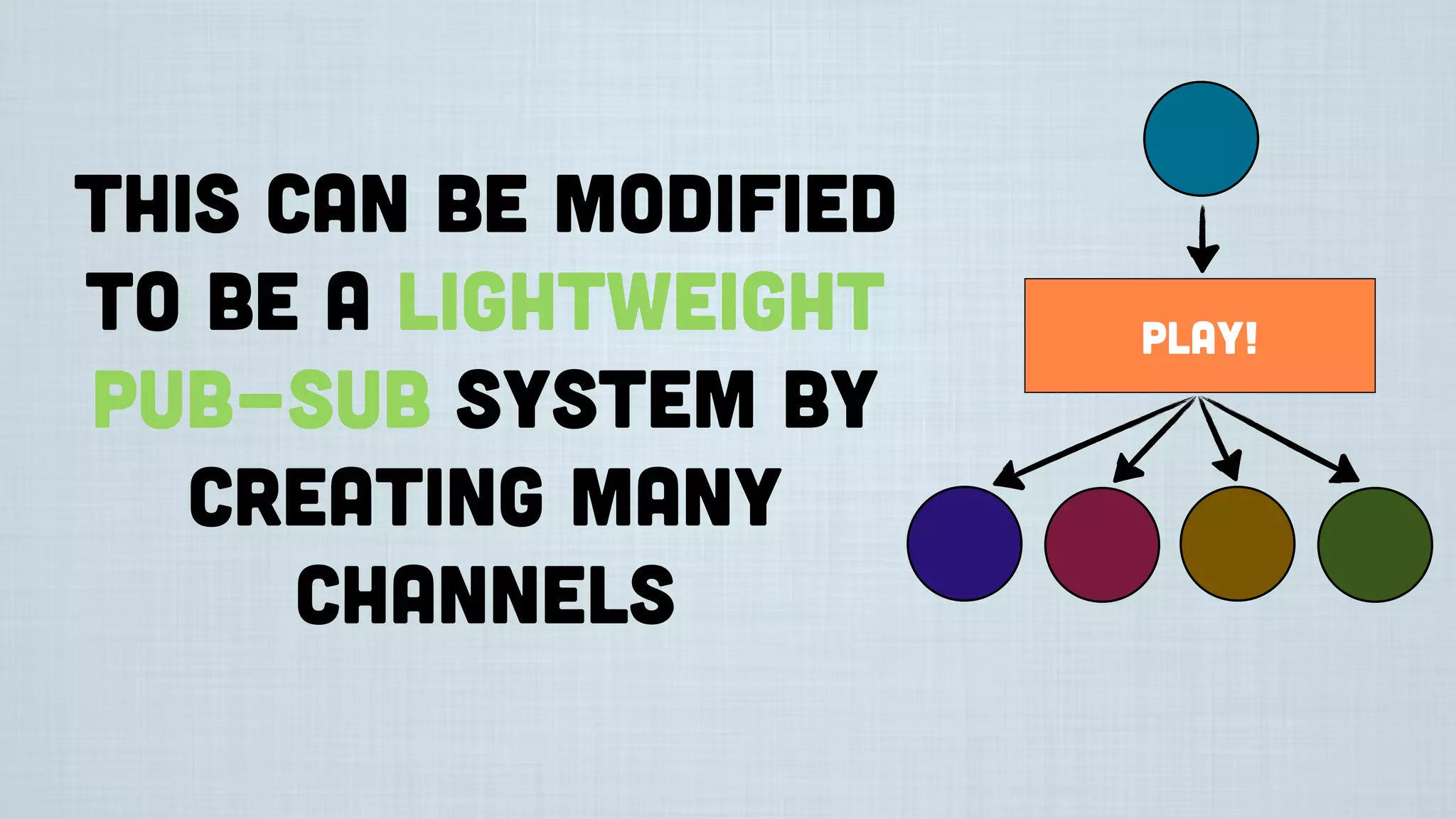
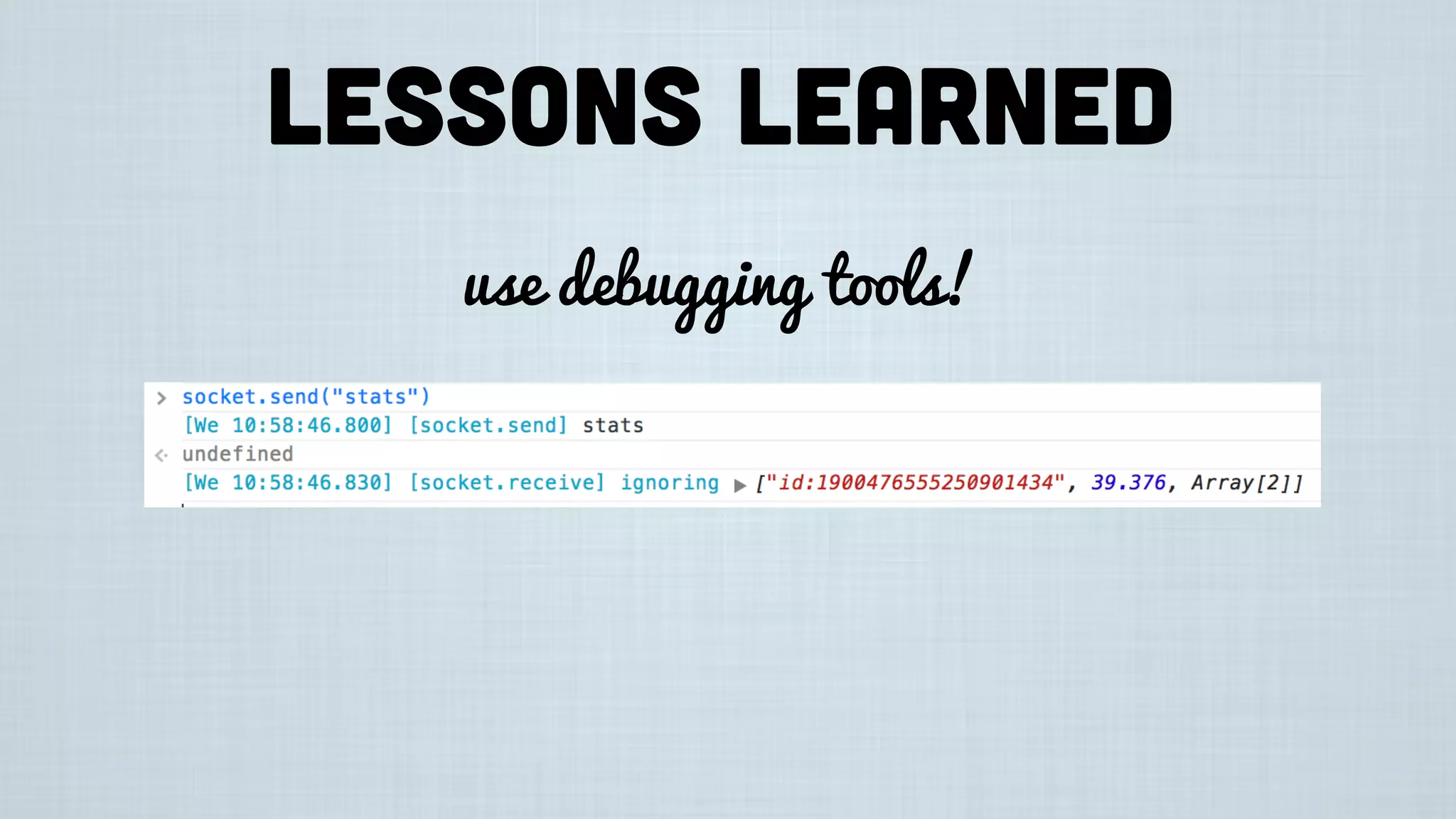
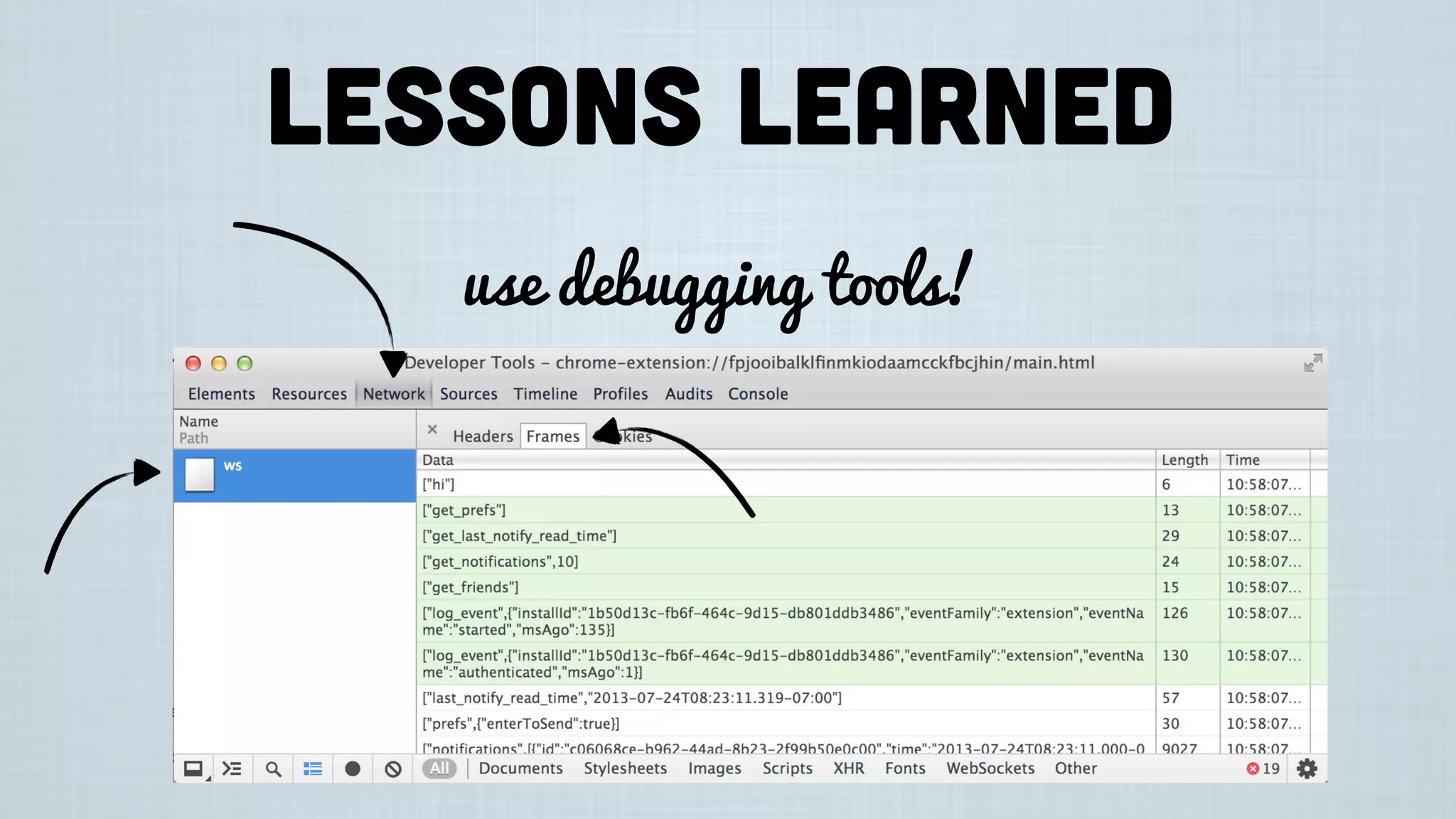

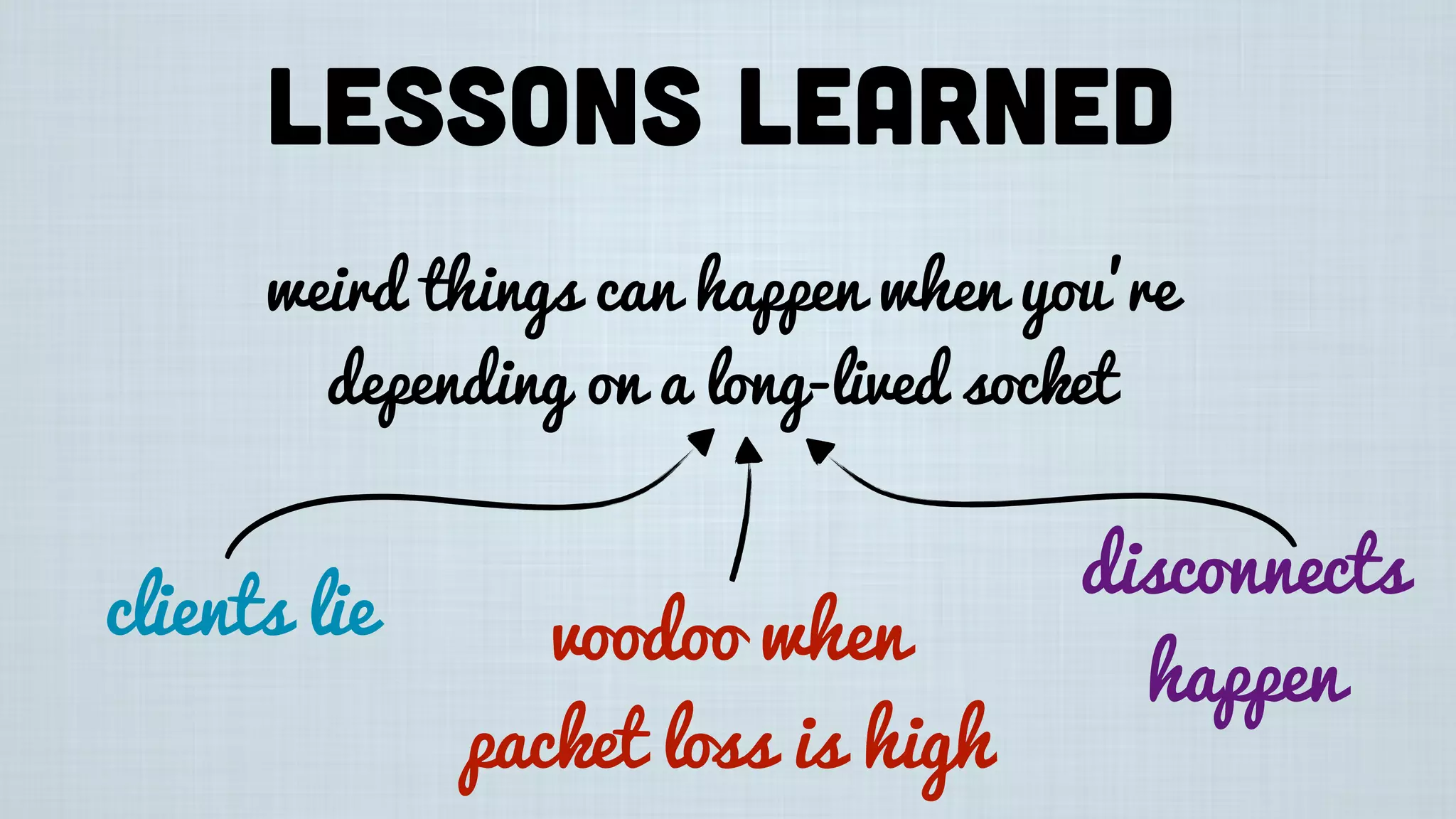
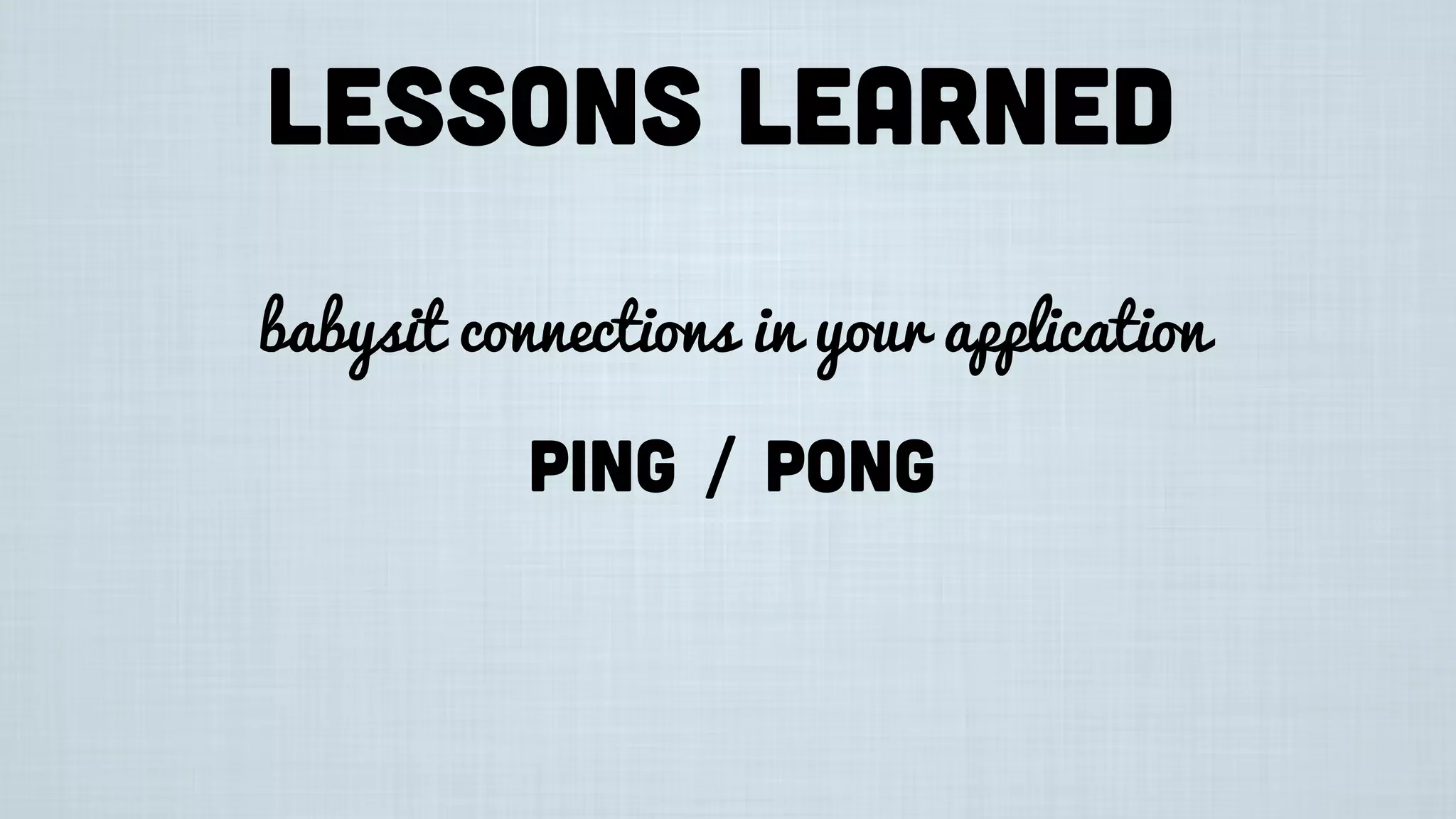
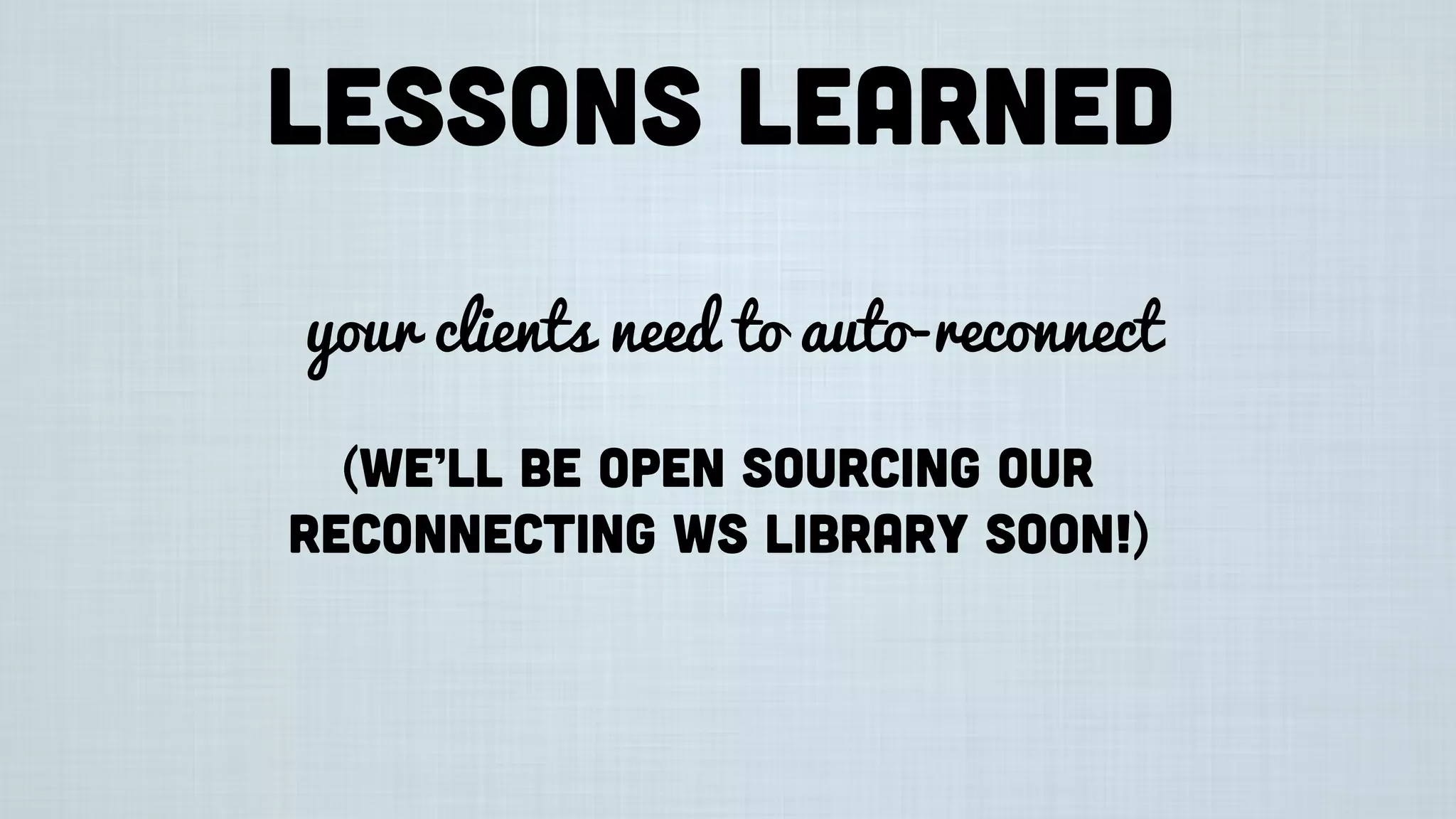
](https://image.slidesharecdn.com/websockets-130725154256-phpapp02/75/Using-Websockets-with-Play-73-2048.jpg)
](https://image.slidesharecdn.com/websockets-130725154256-phpapp02/75/Using-Websockets-with-Play-74-2048.jpg)
